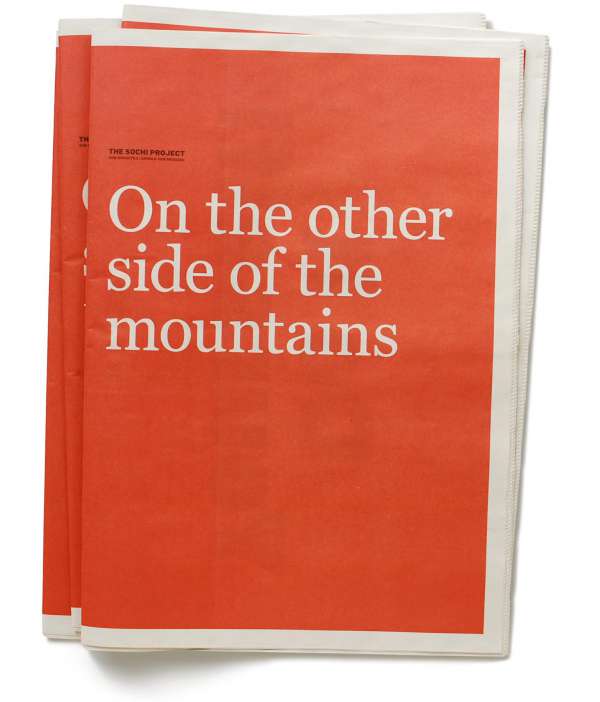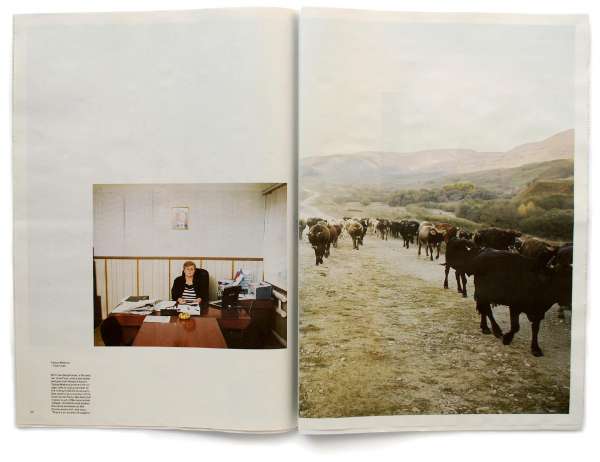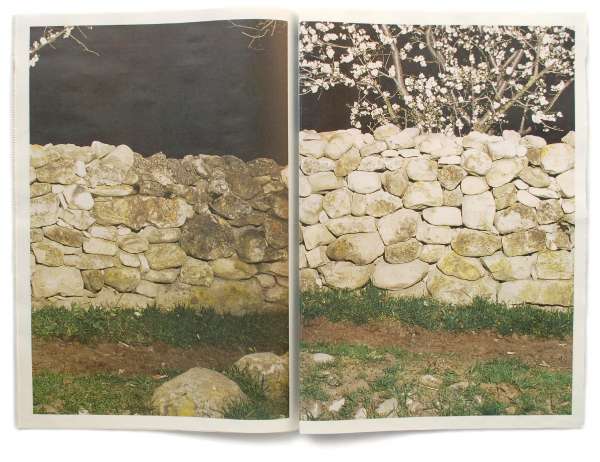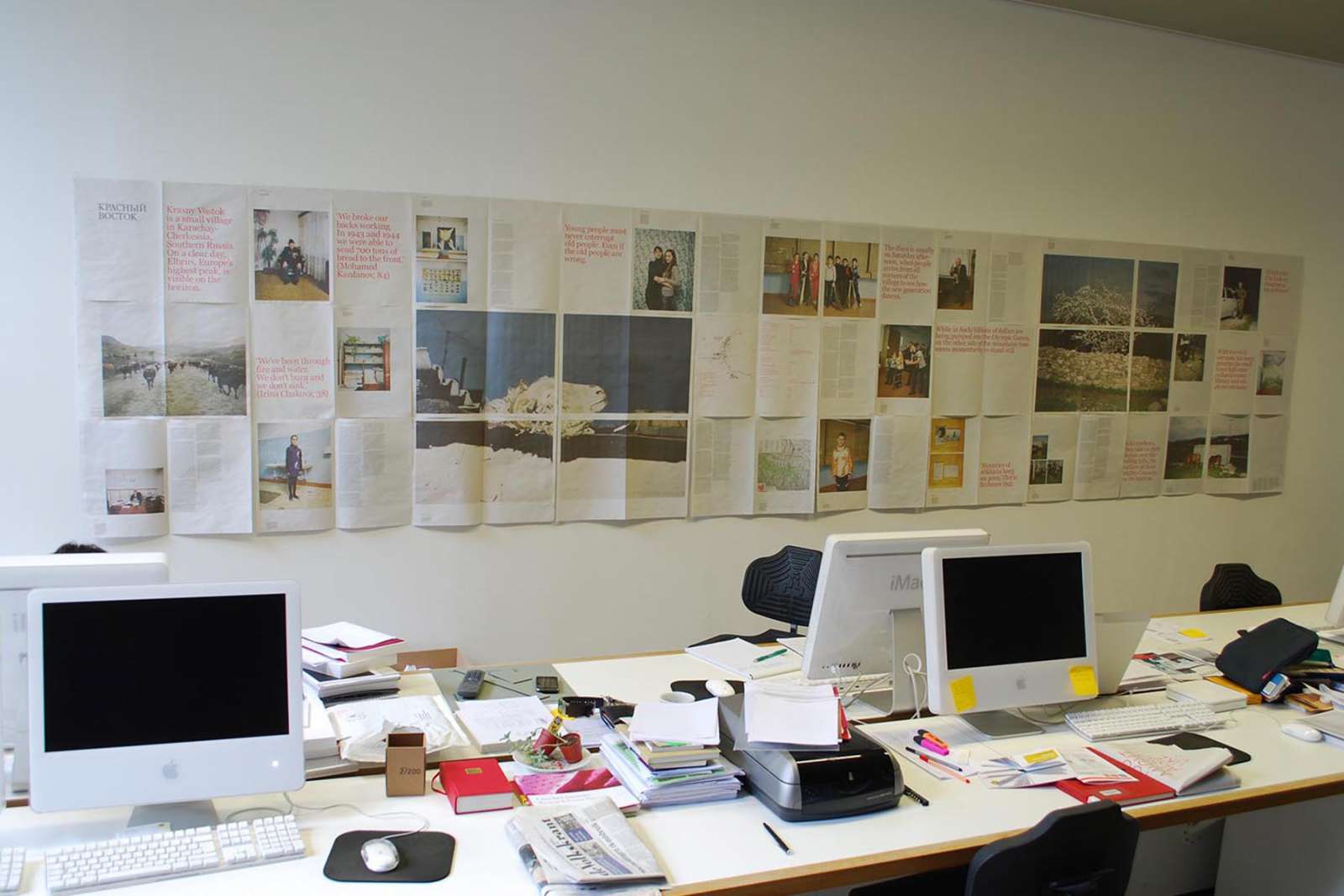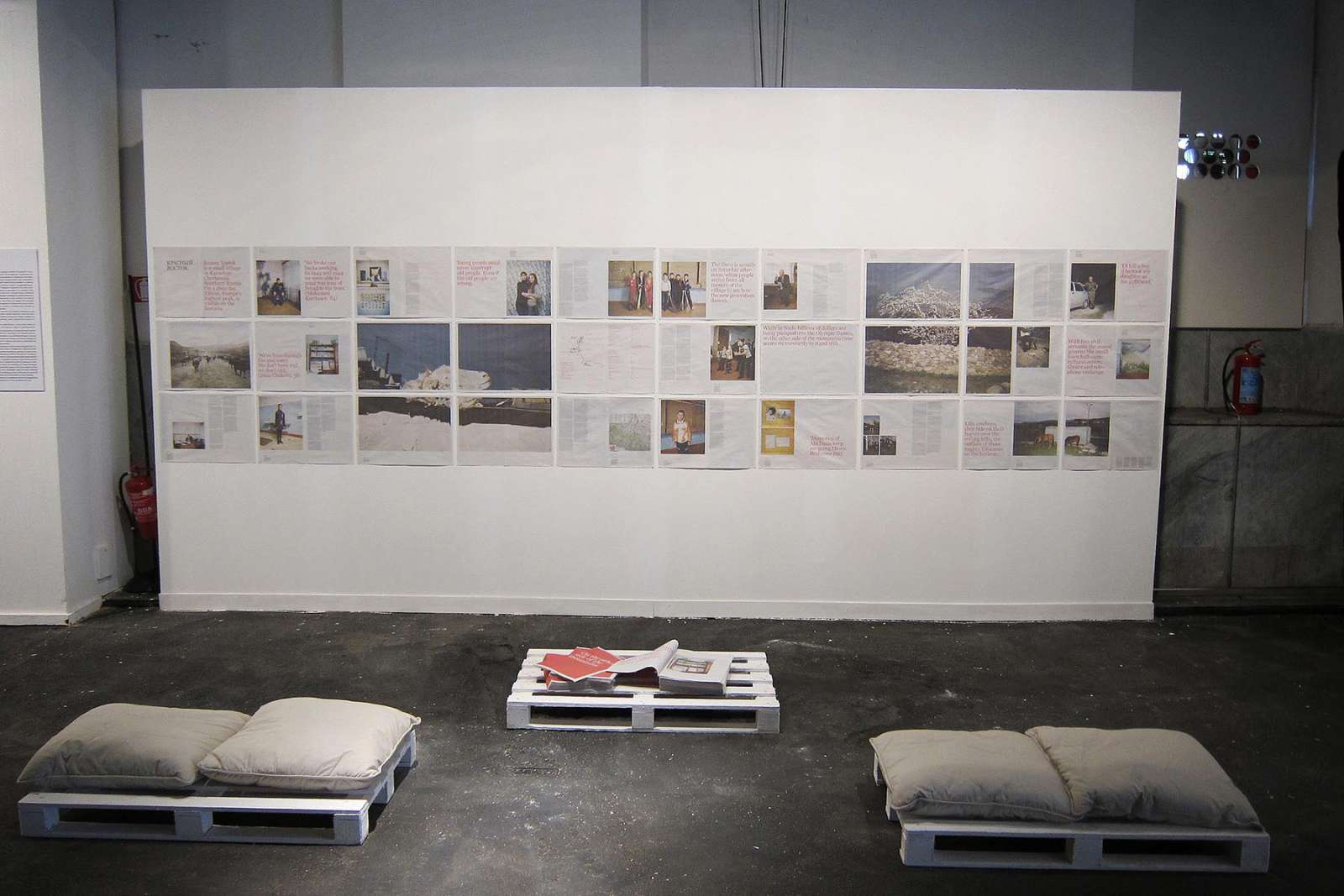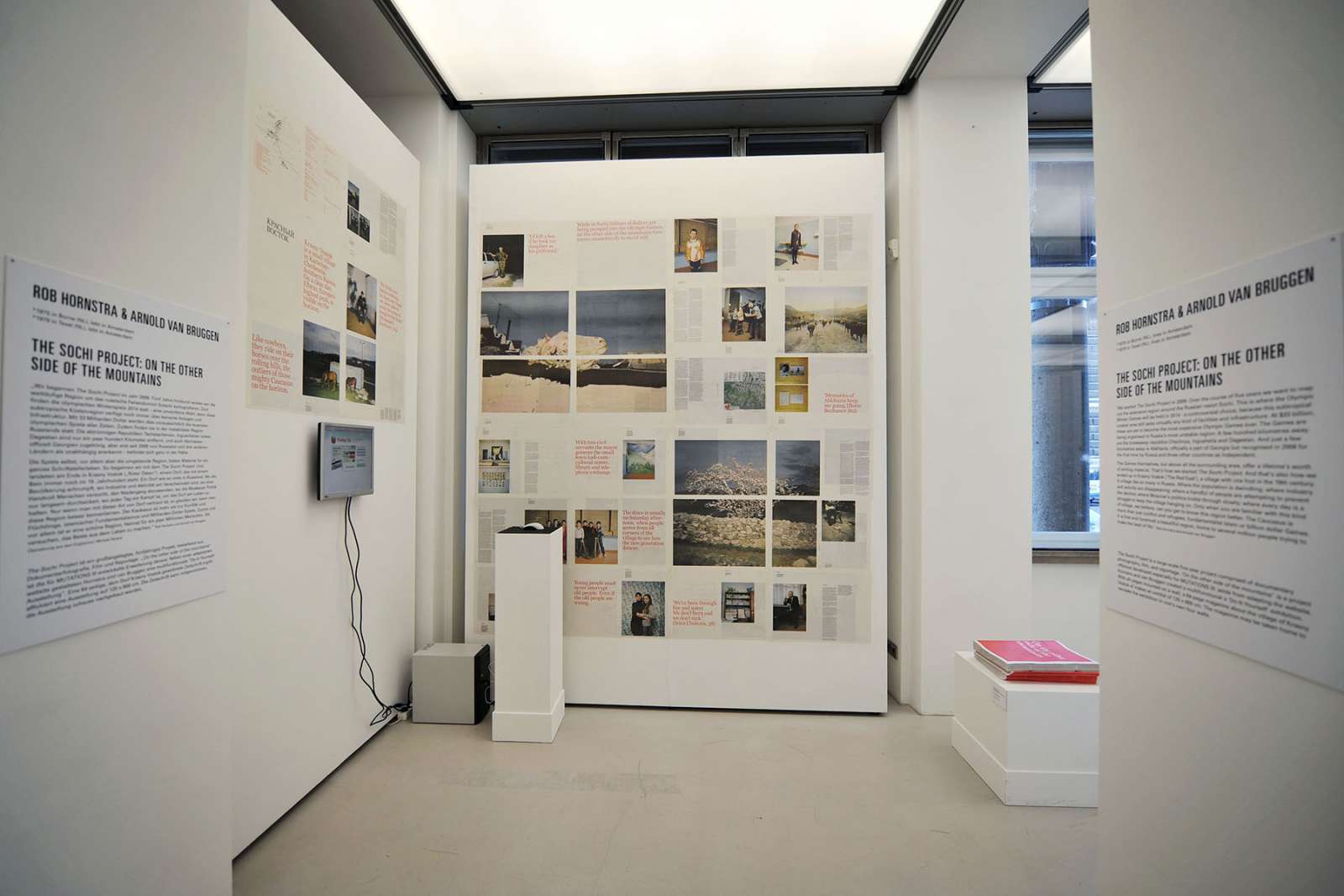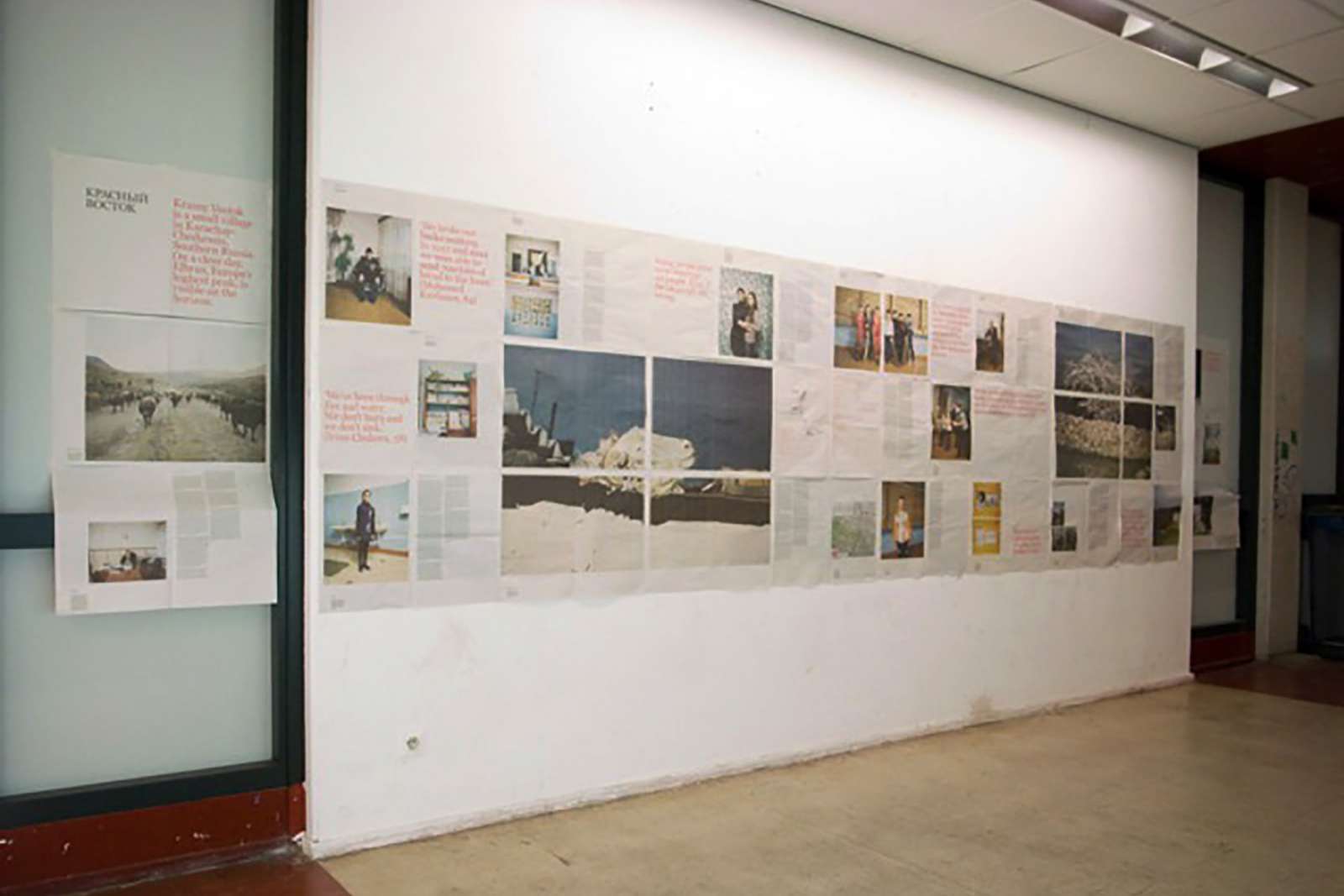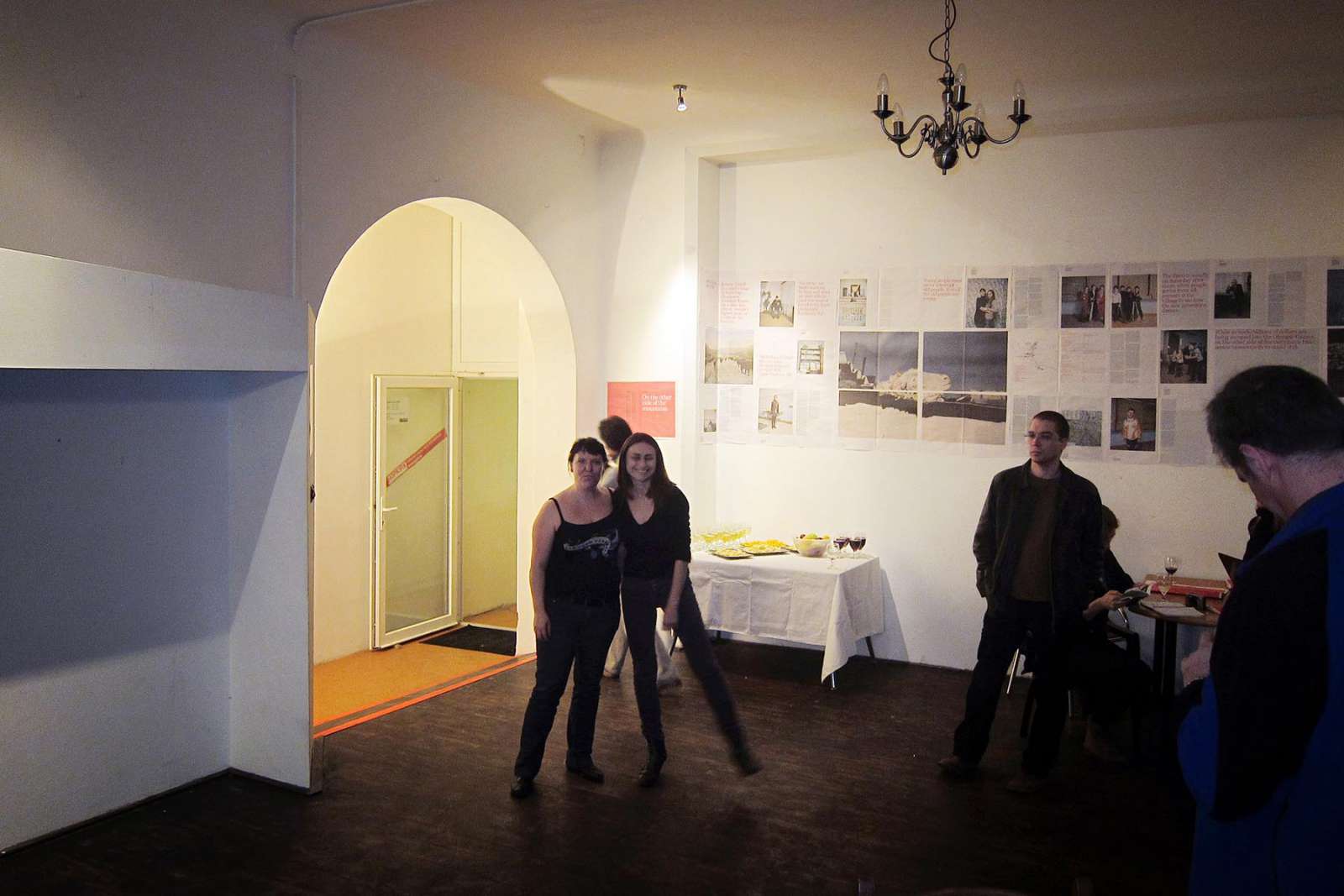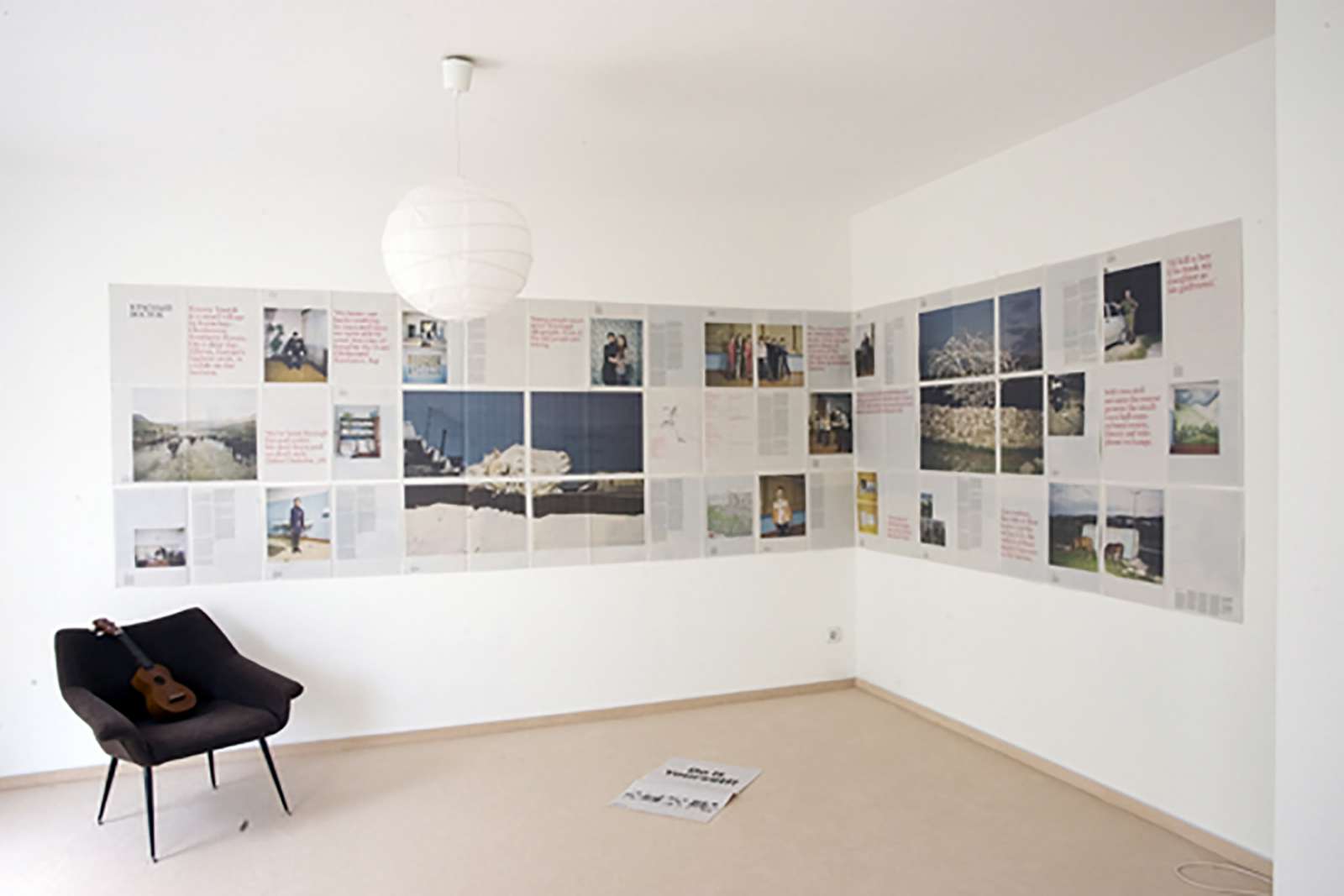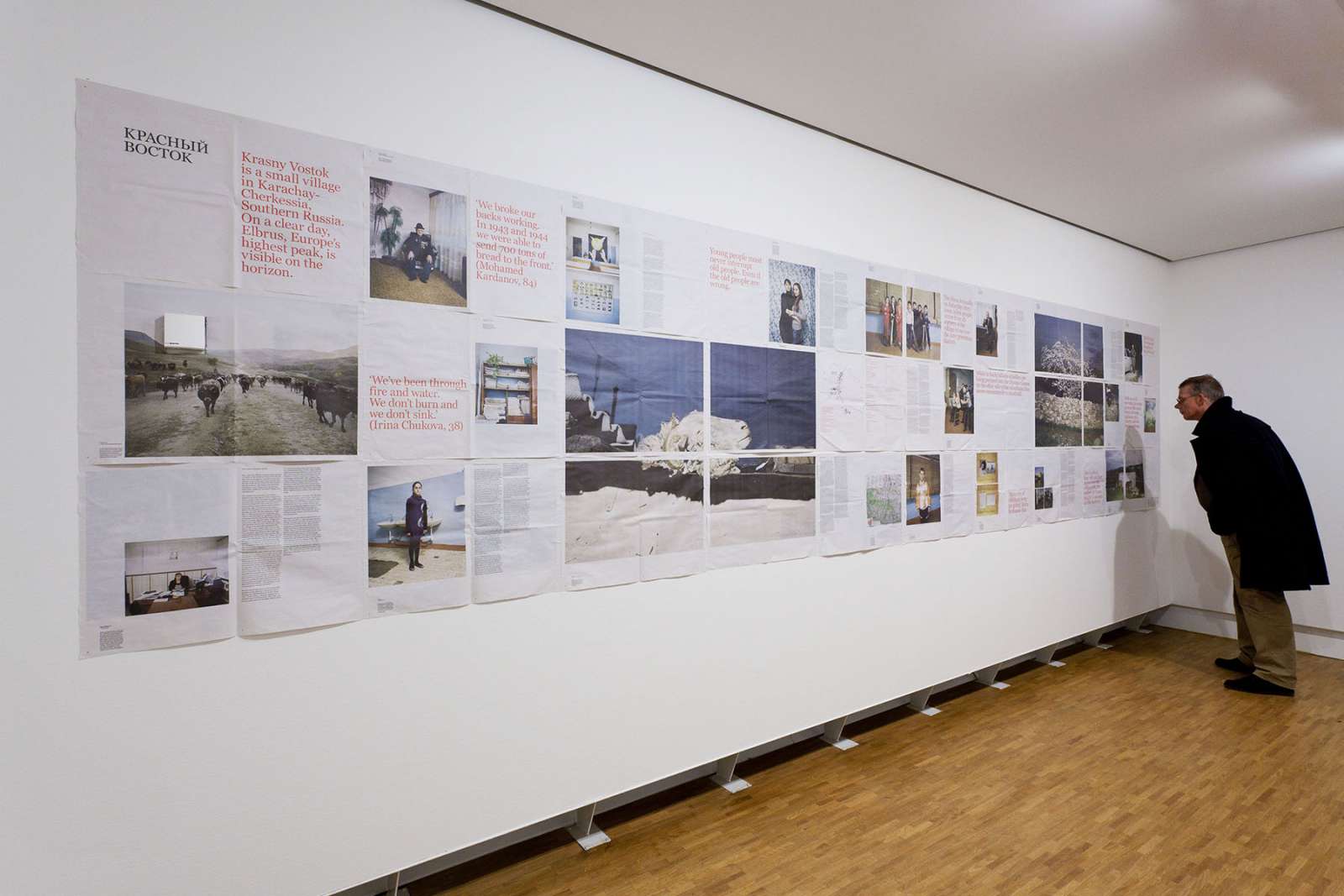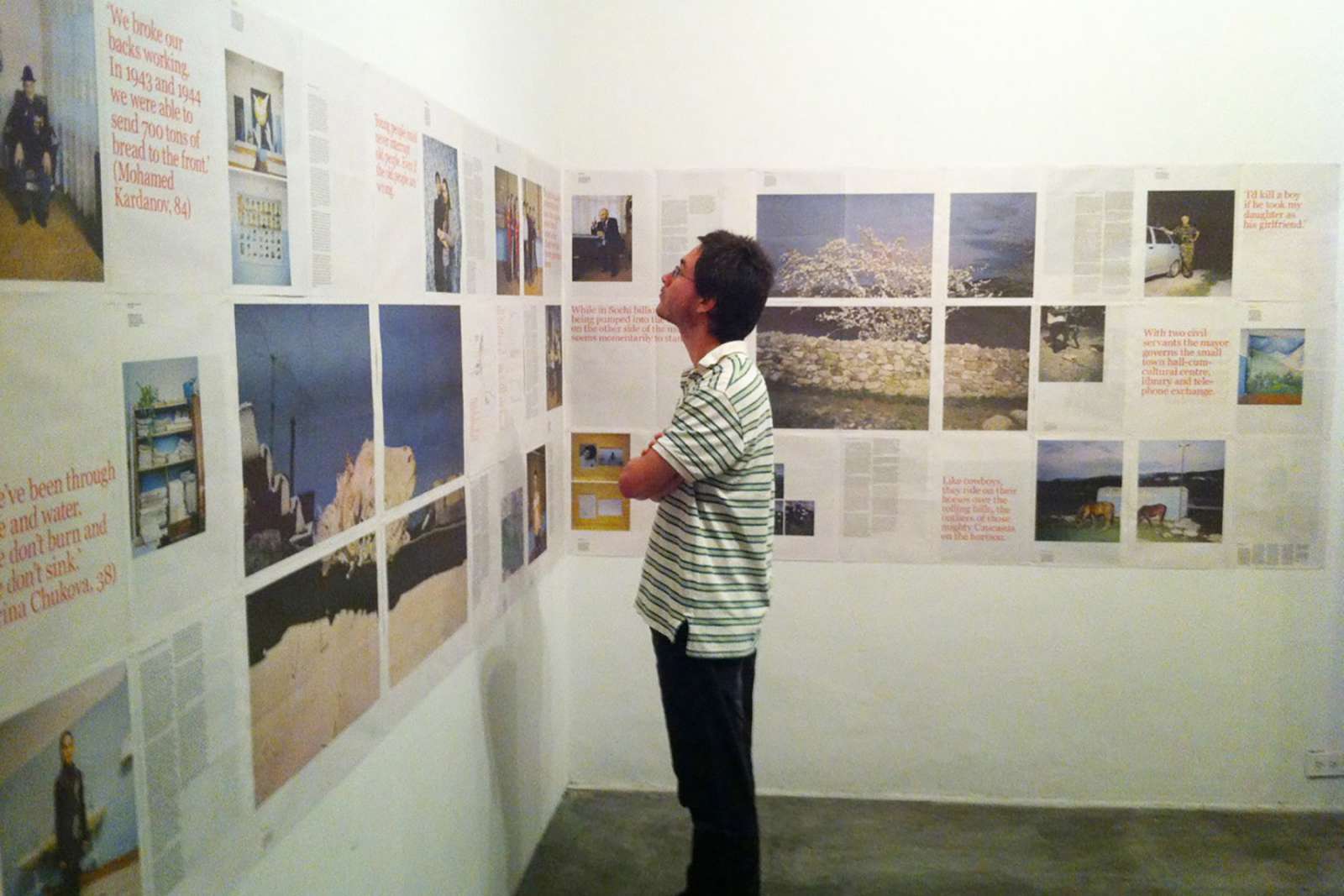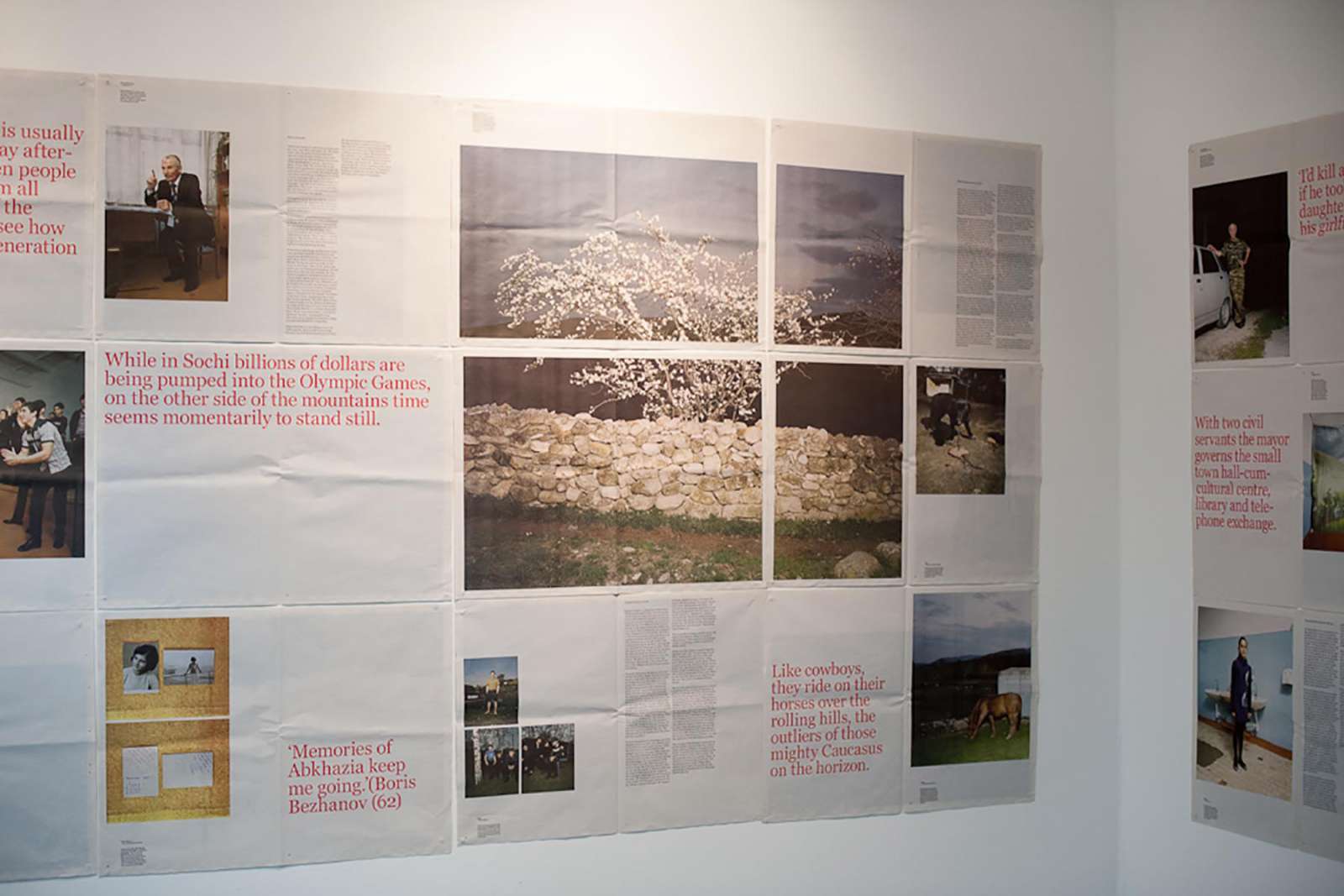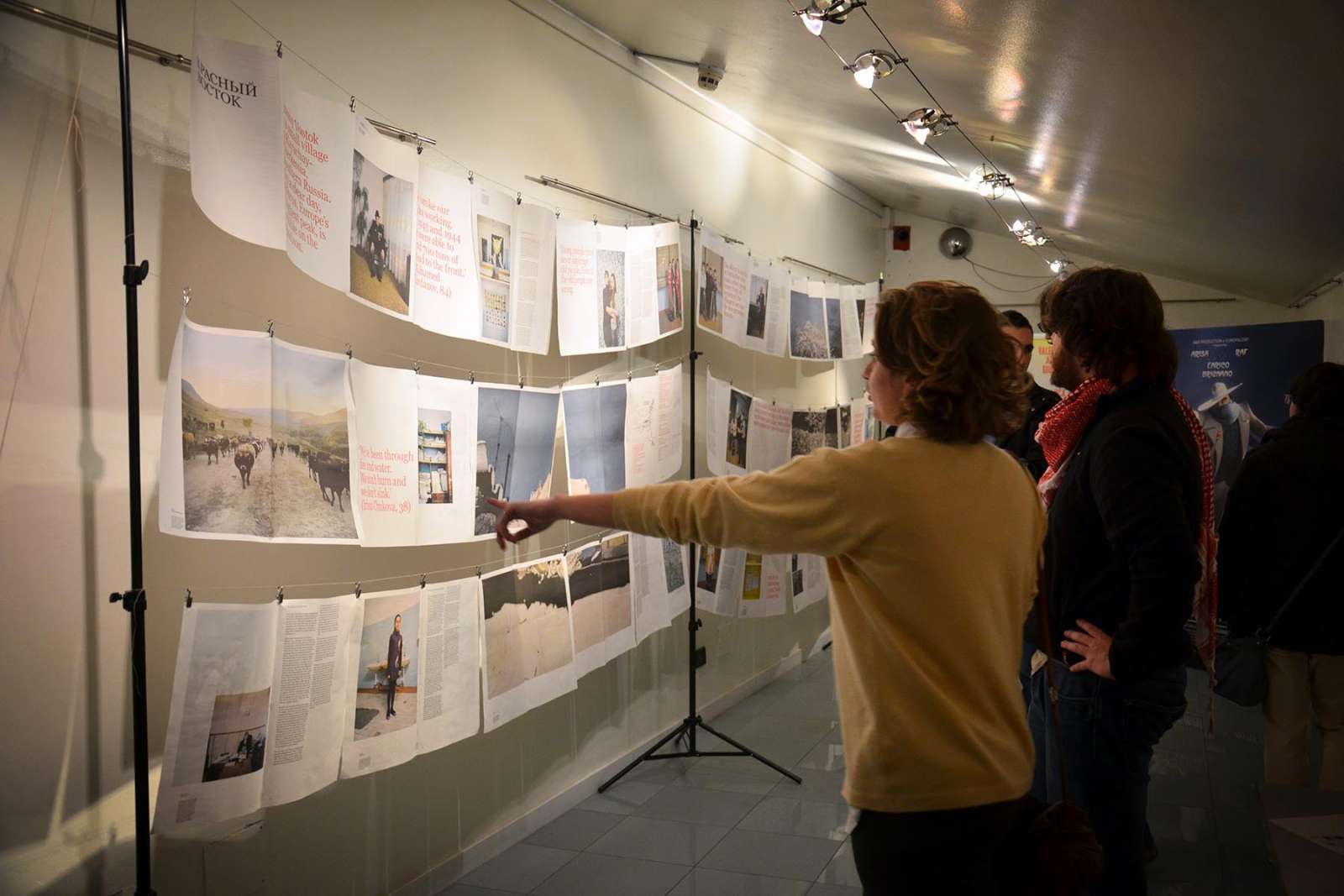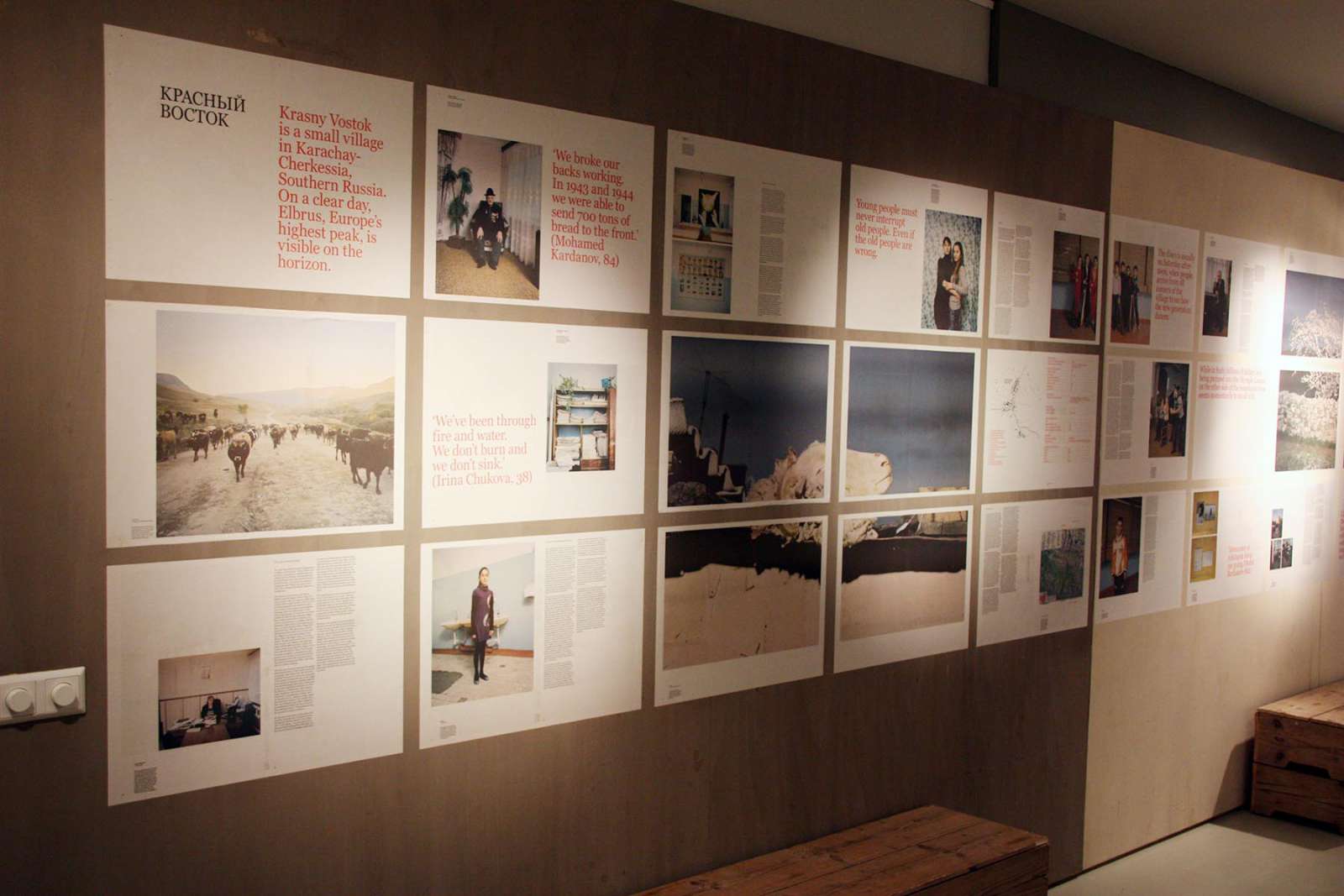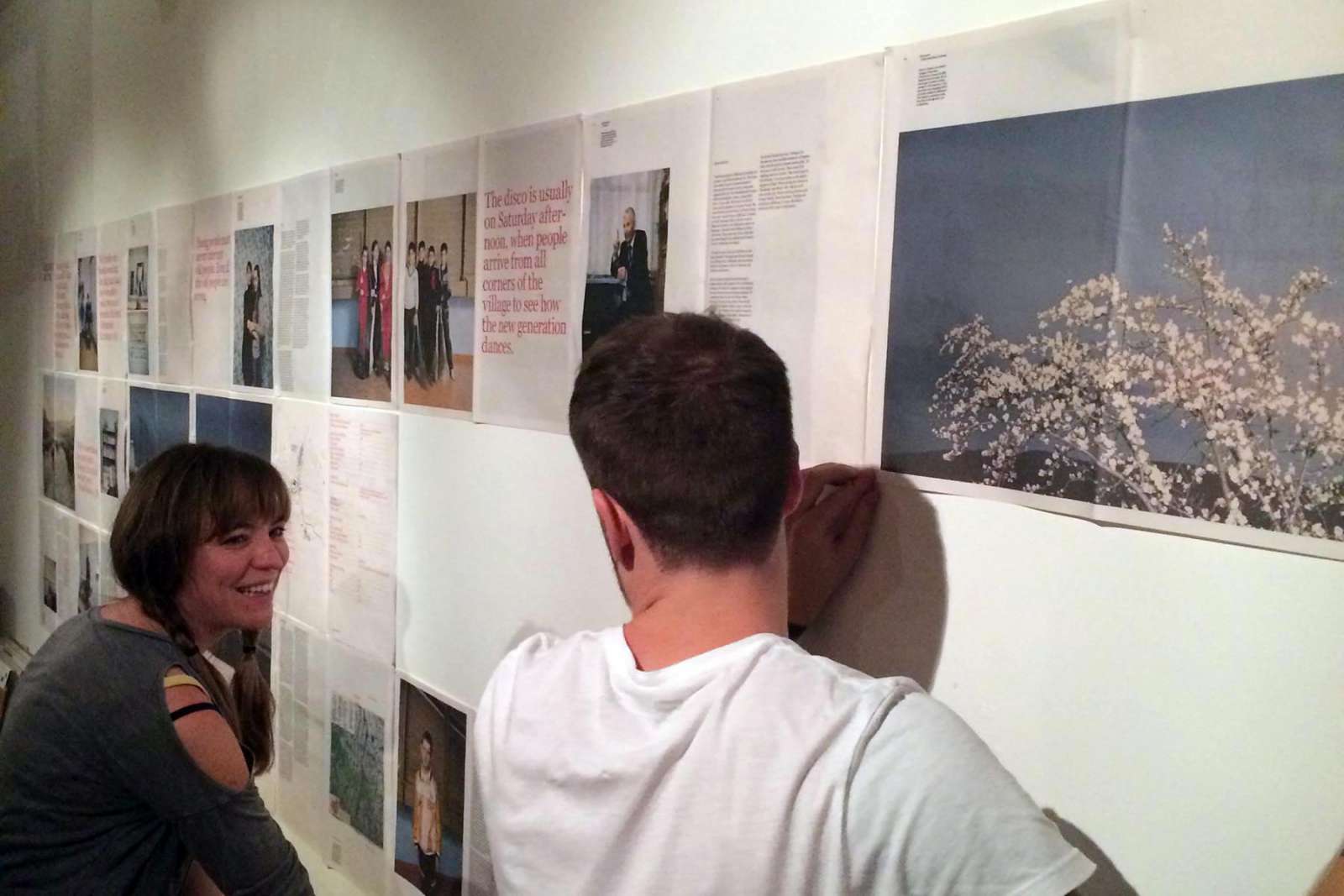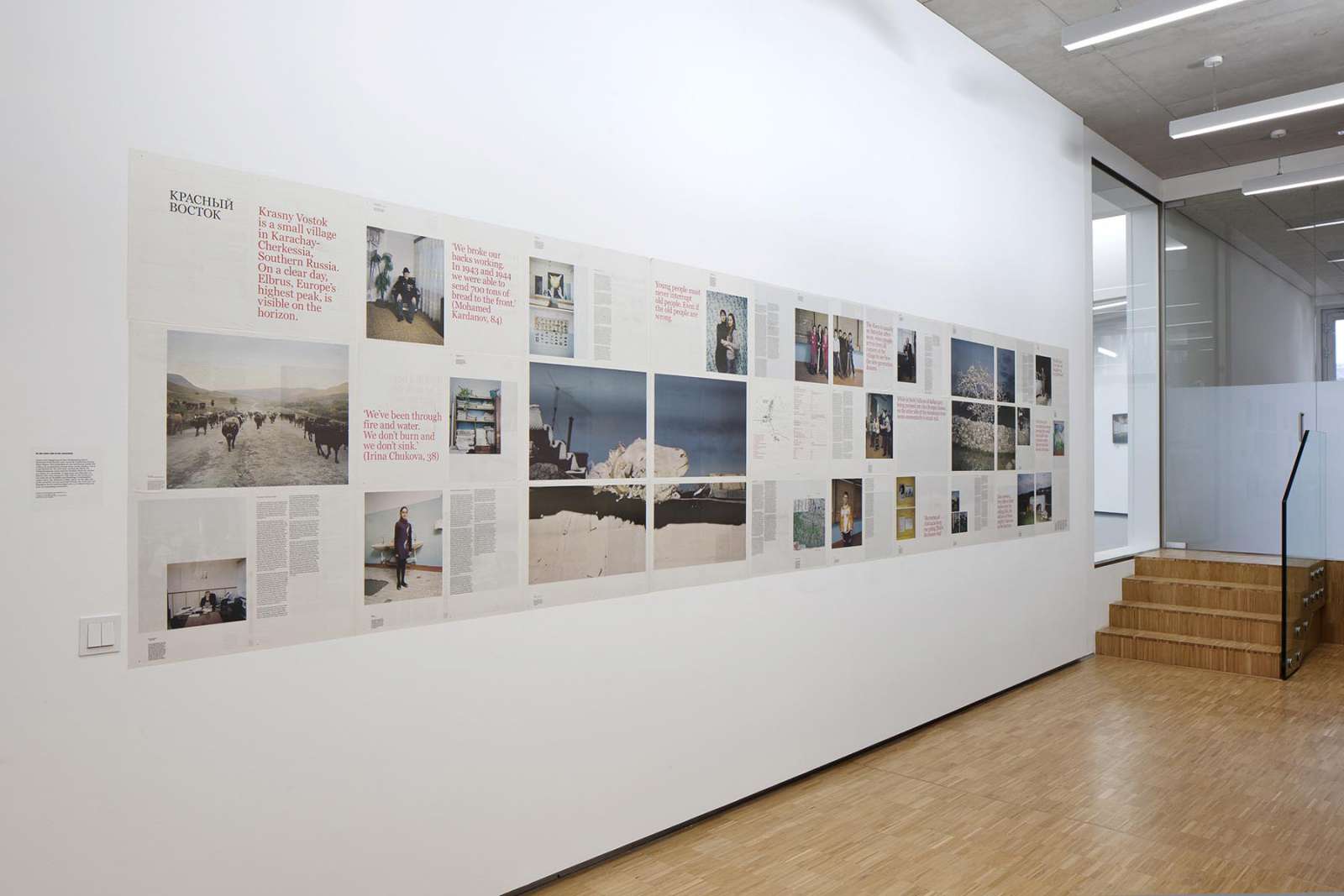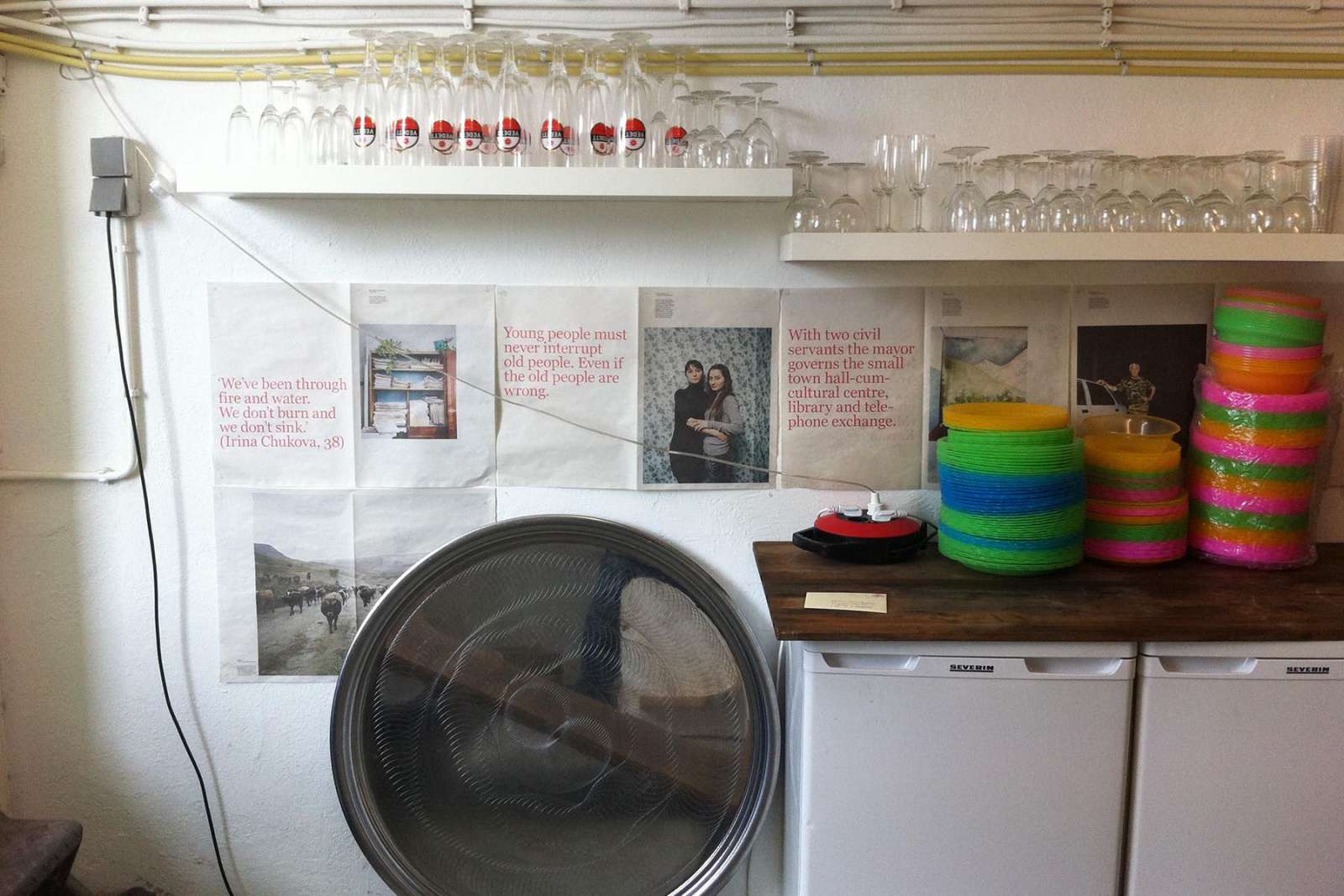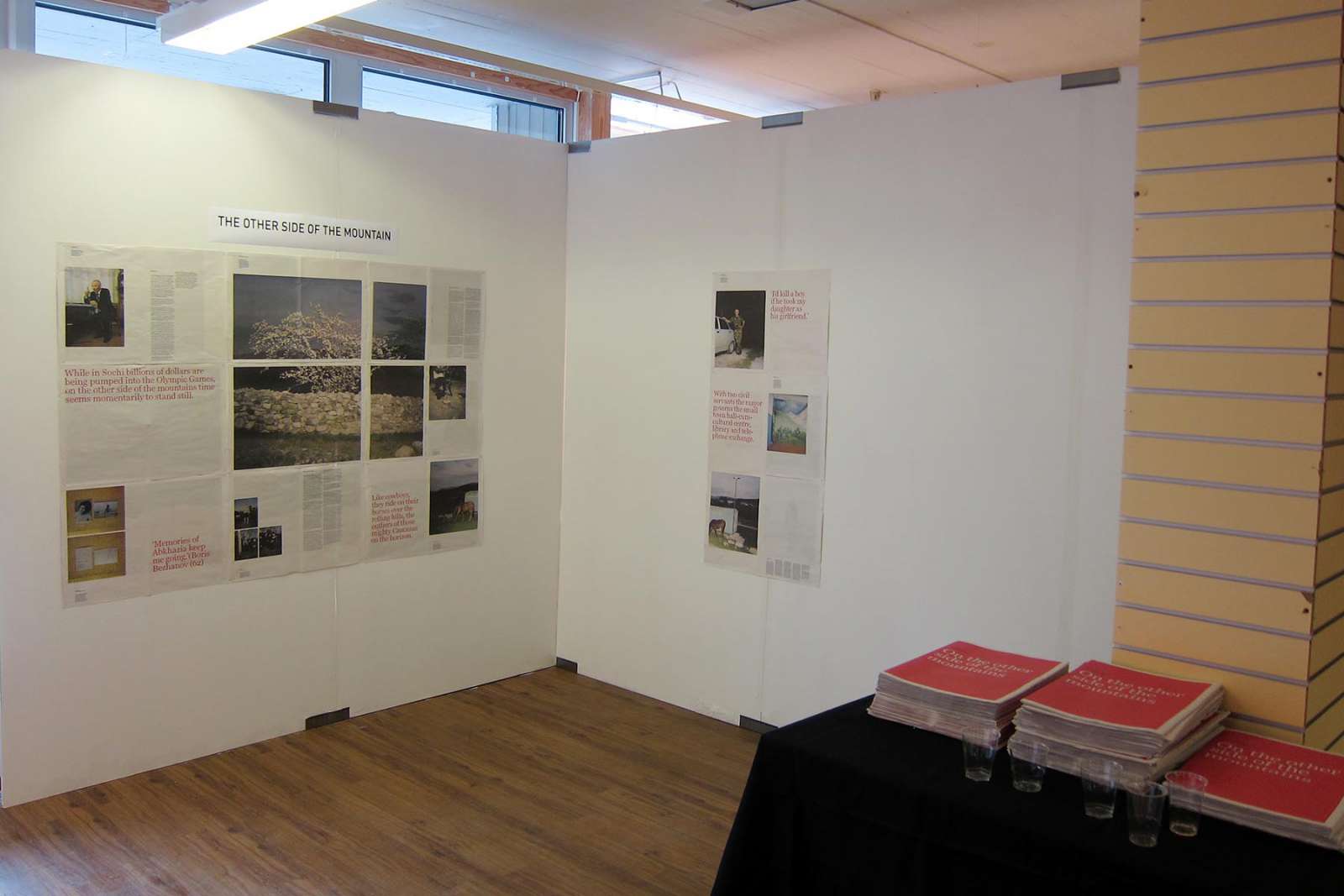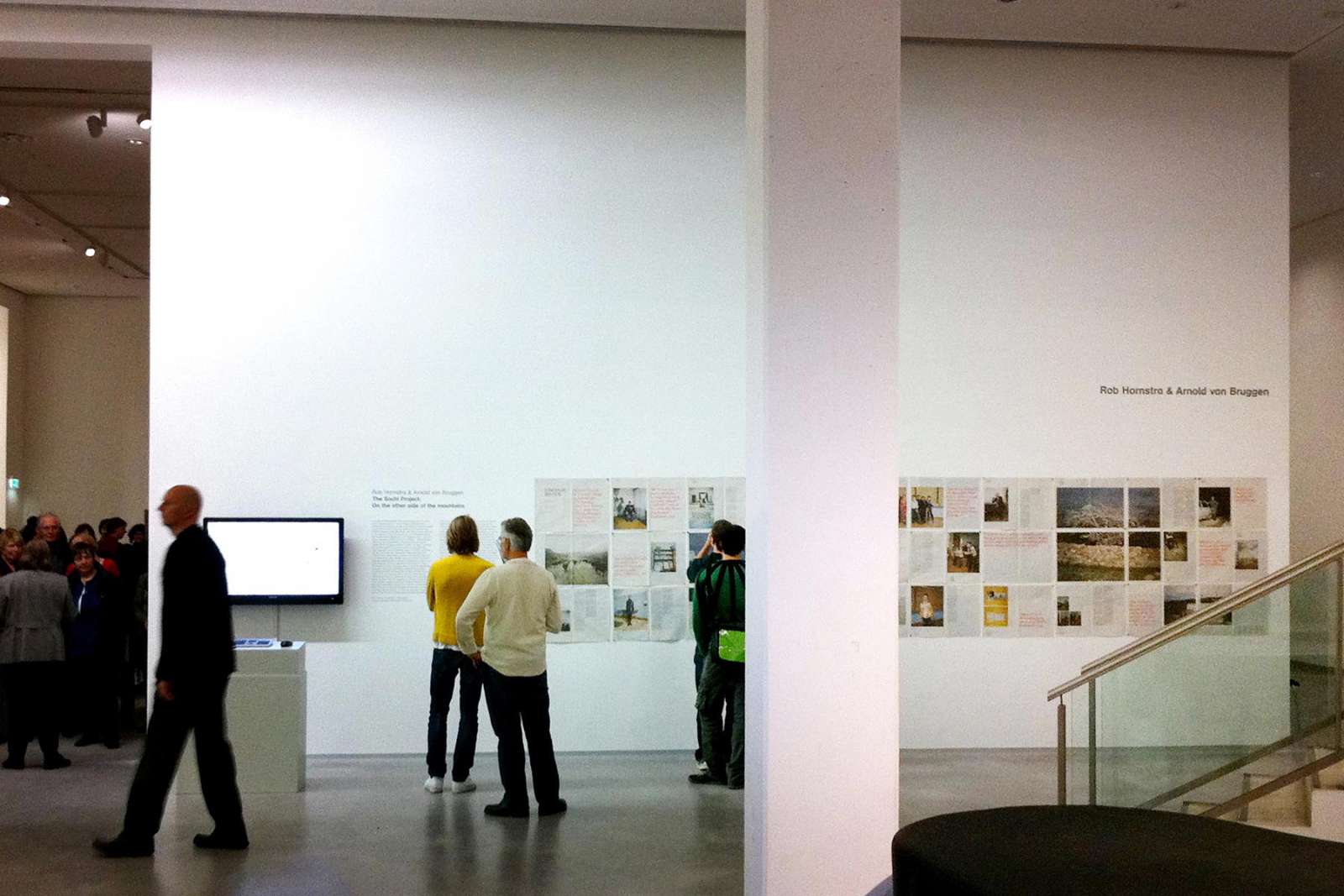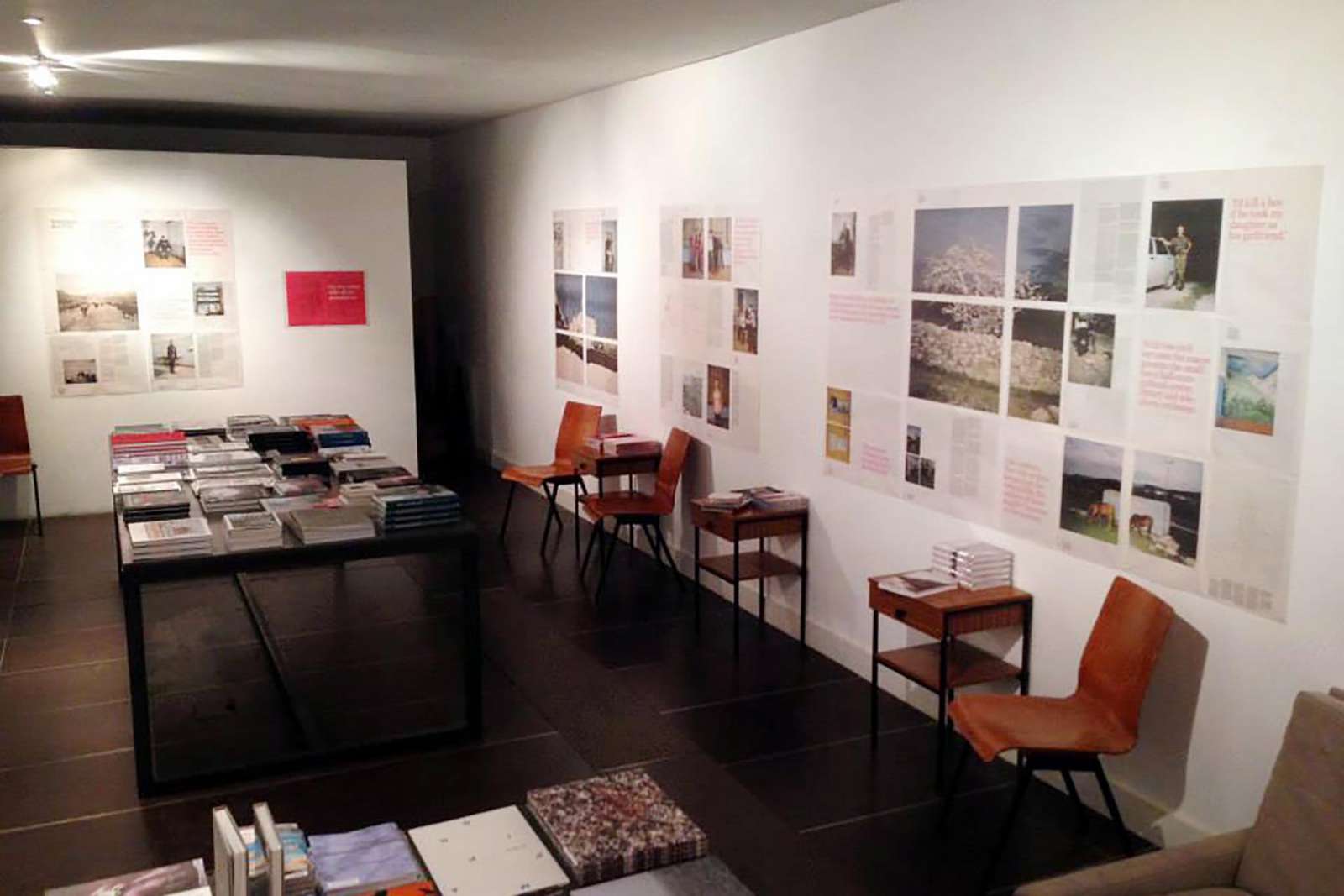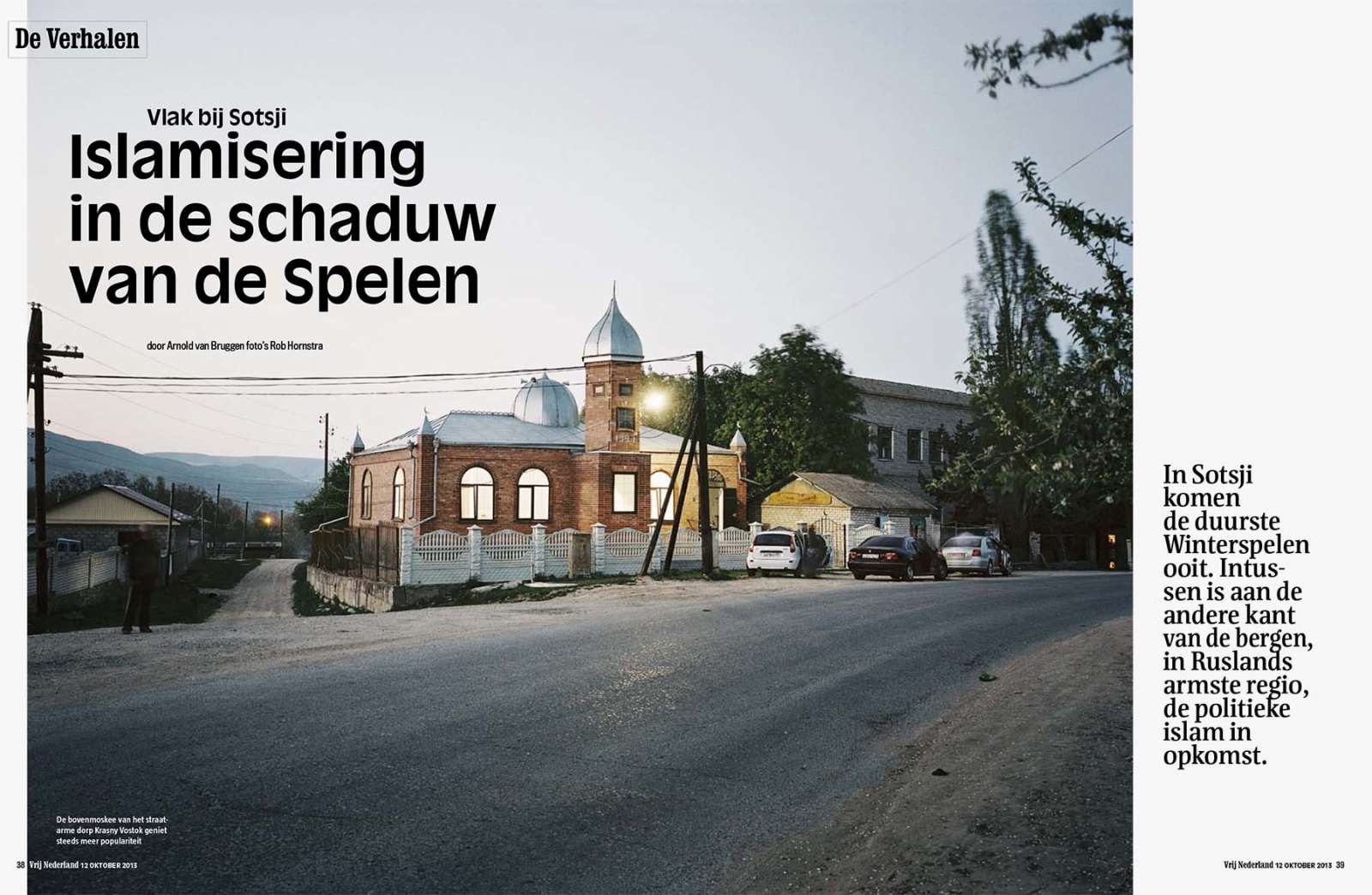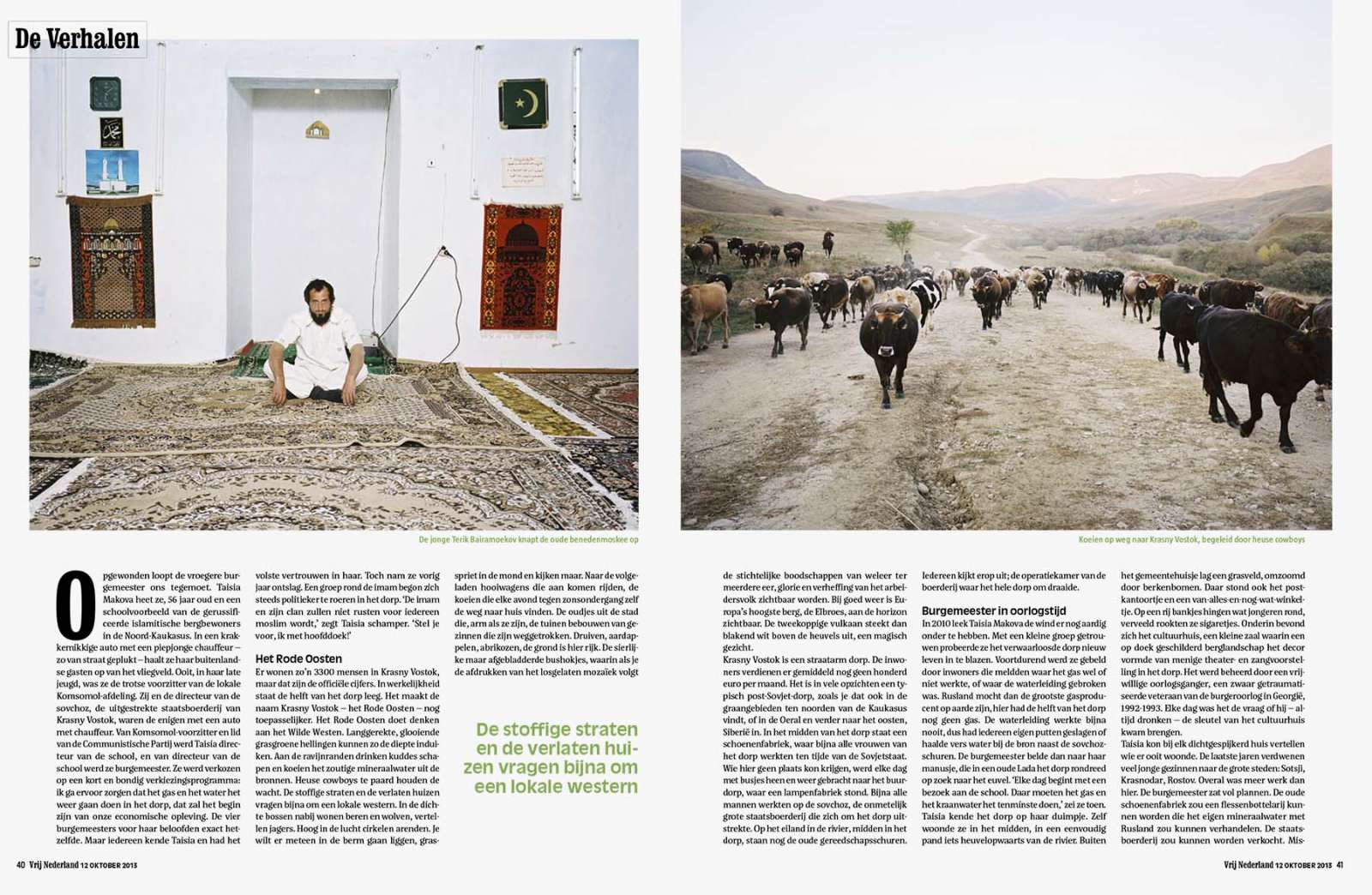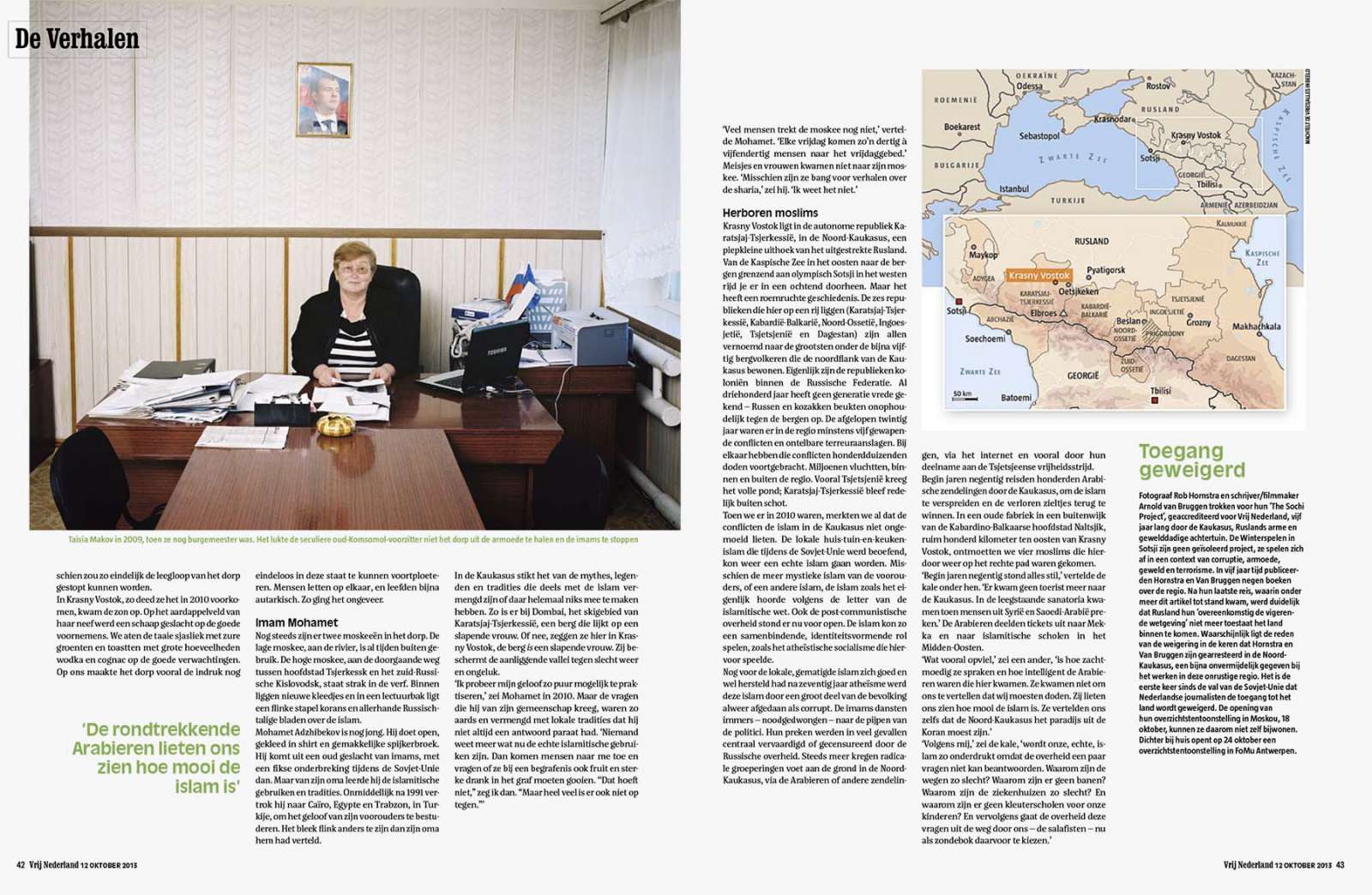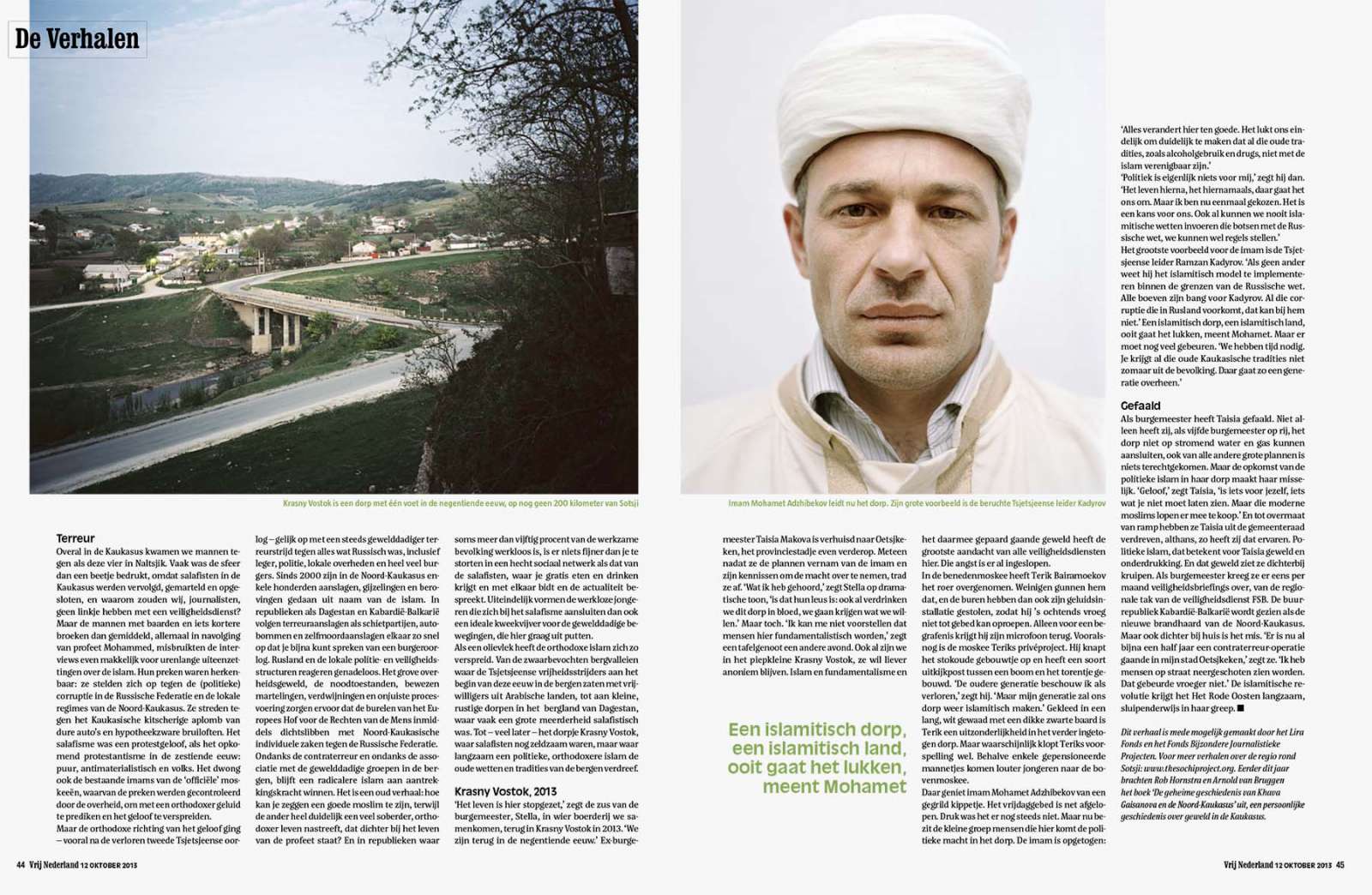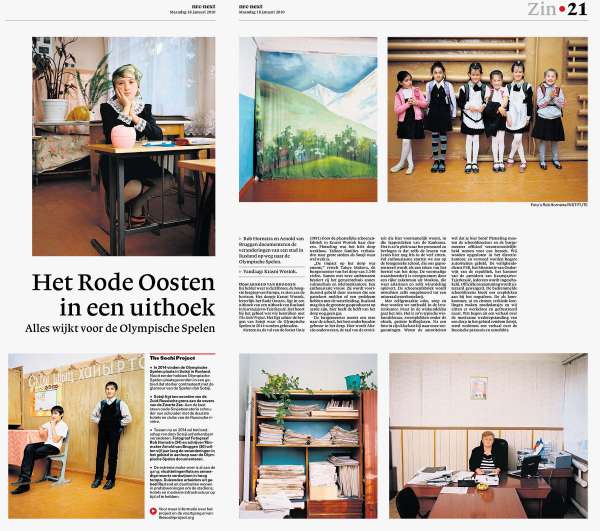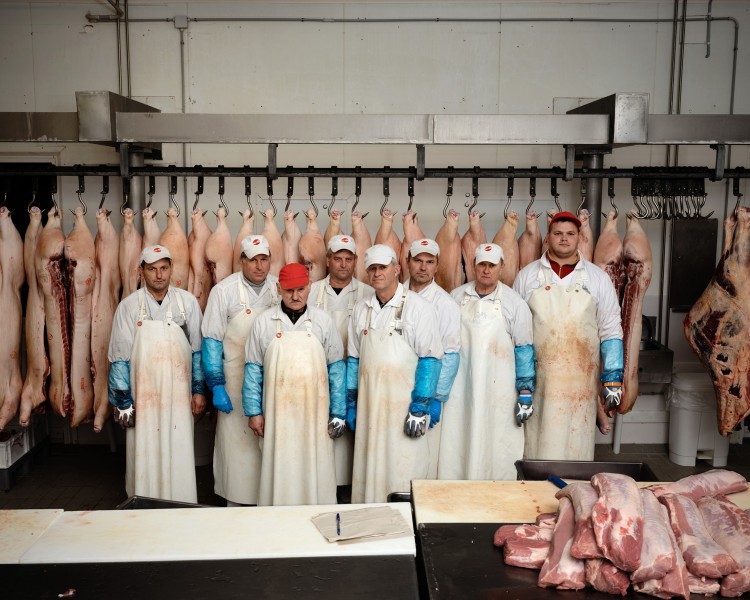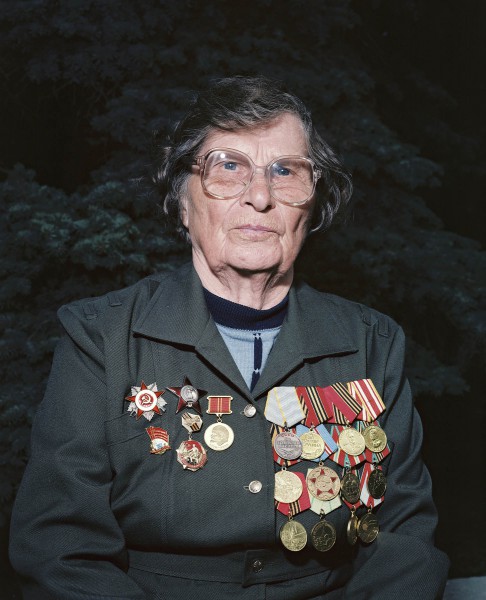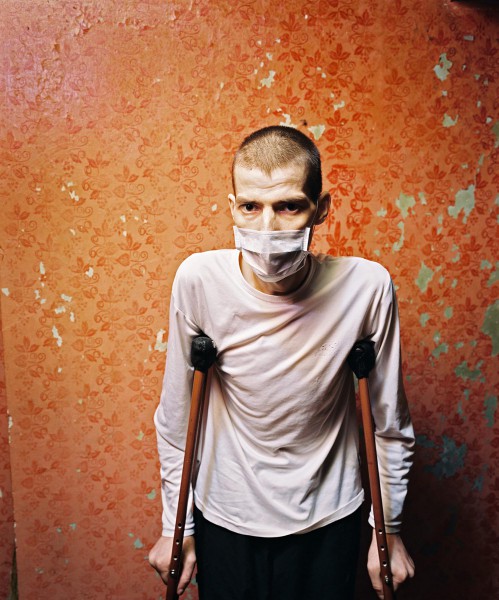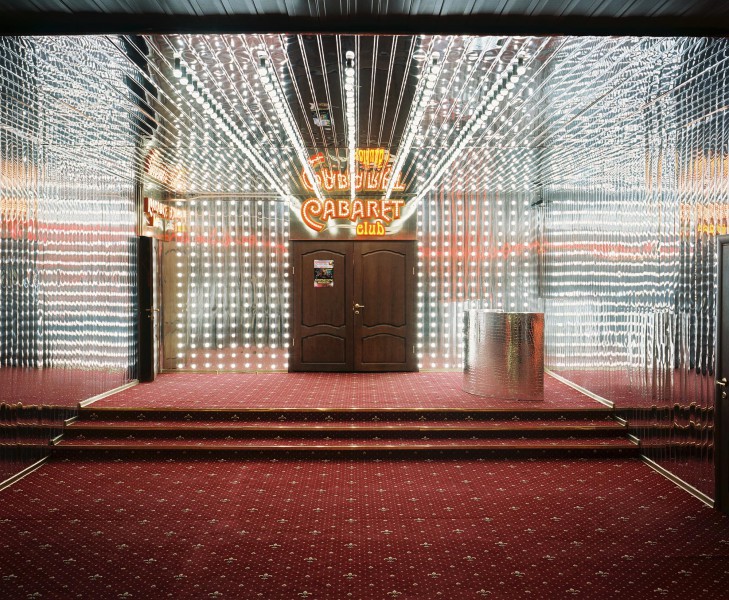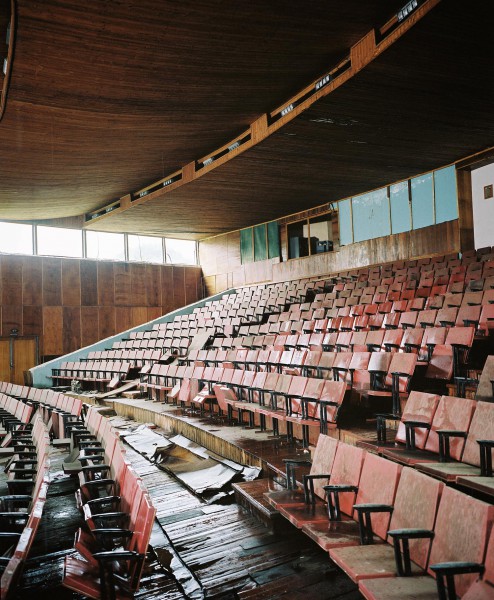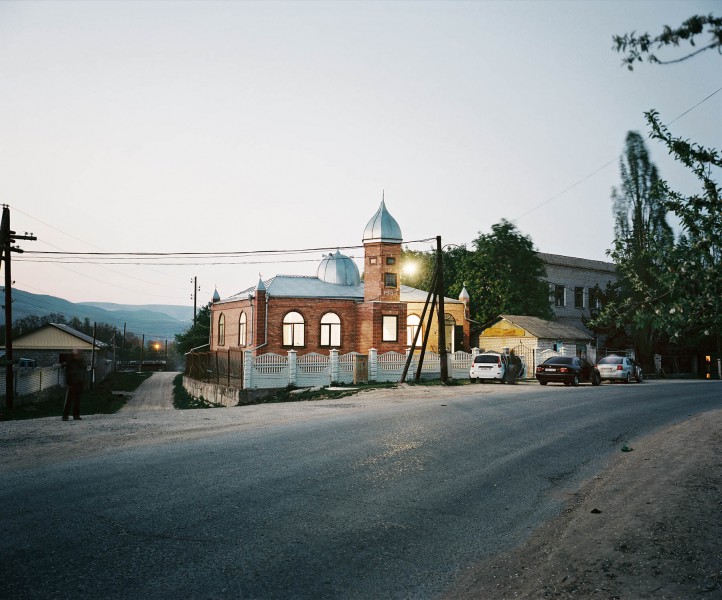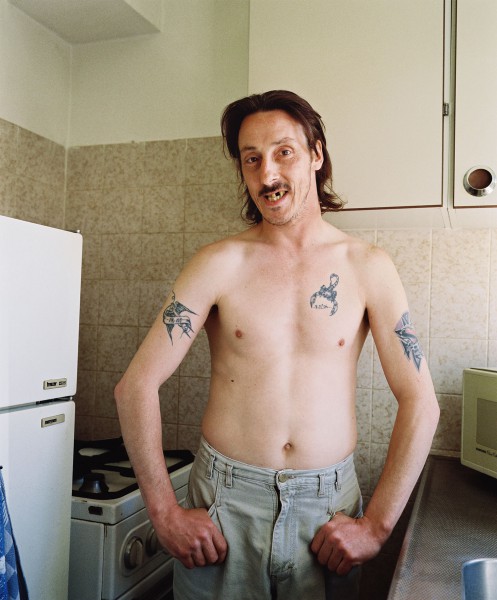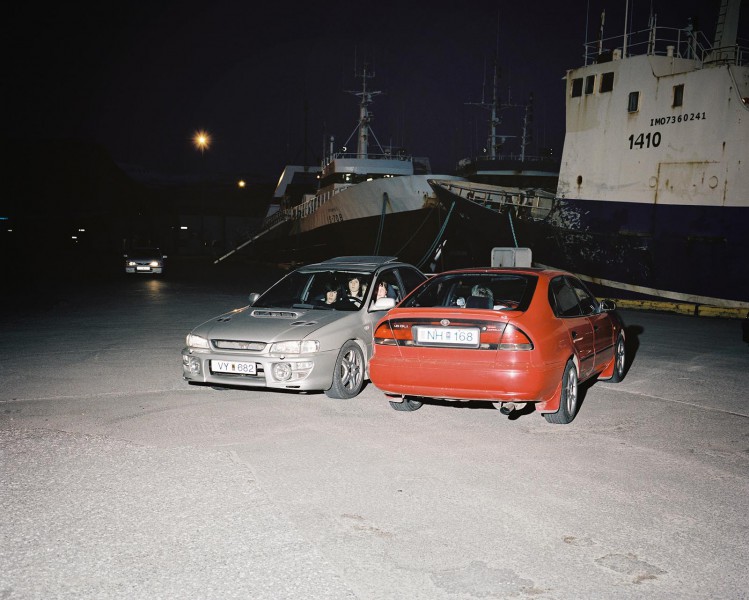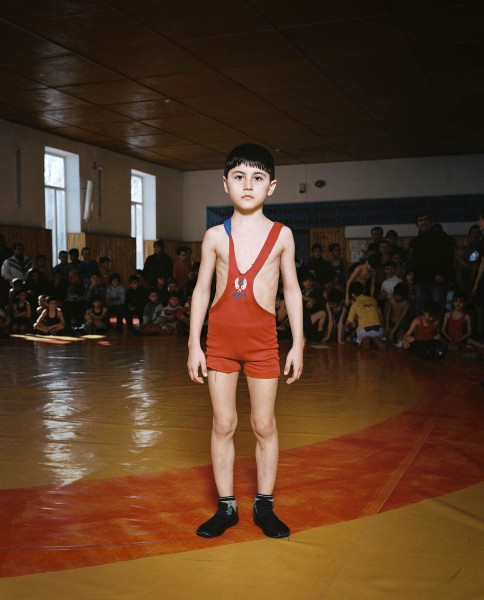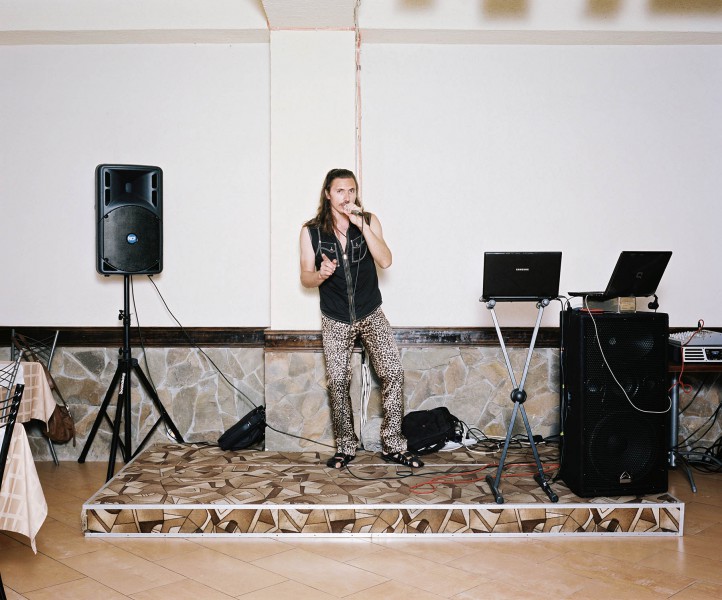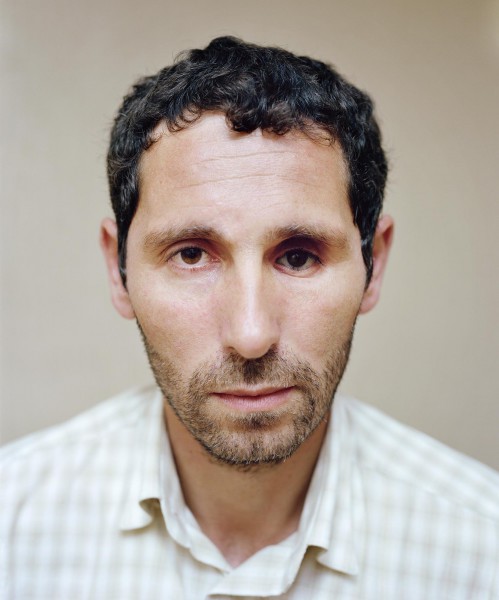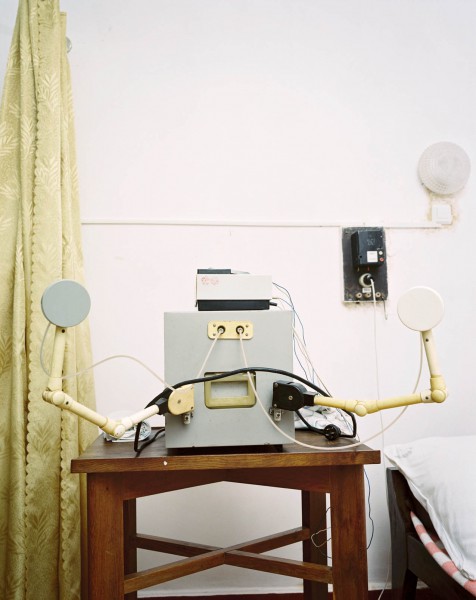On the other side of the mountains
Our first encounter with the North Caucasus was of the region’s most relaxed republic: Karachay-Cherkessia, on the other side of the mountains from Sochi. There we discovered the village of Krasny Vostok. We wanted to portray the village precisely because it is so ordinary: the defunct factory, the unemployment as well as the rural feeling that the place conveyed to us. The Caucasus is more than just conflict and refugees, fundamentalist Islam, or billion-dollar Games. Less than two years after publication of On the other side of the mountains, a small revolution seemed to have taken place. The mayor resigned and “a clique around the imam,” as she puts it, has taken the reins. The Red East turns Green. We decided to return to Krasny Vostok in 2013.
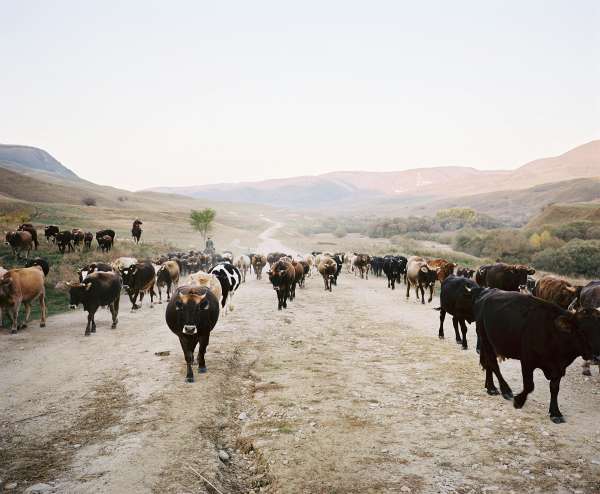
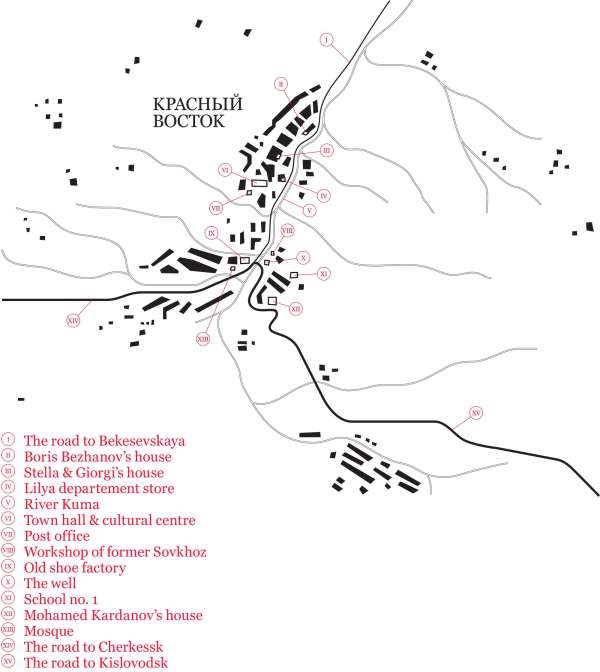
© design kummer & herrman
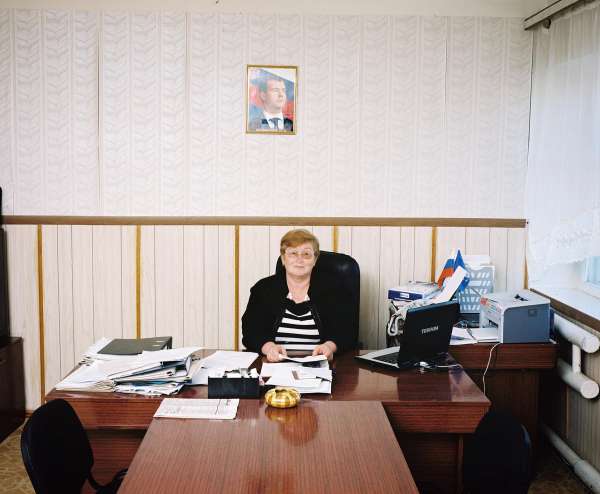
Taisya Makova, when she was still mayor of the village
Town Hall, 2009
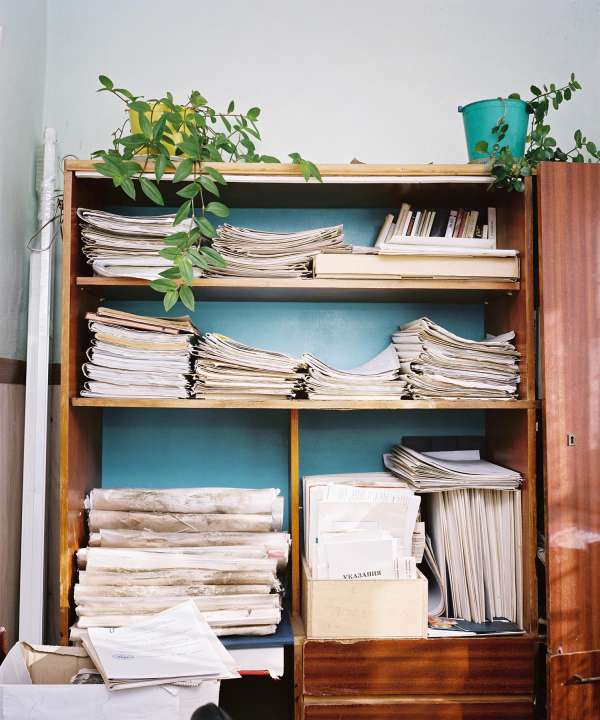
Civil servant Rubin Bidov’s cupboard
Town hall, 2009
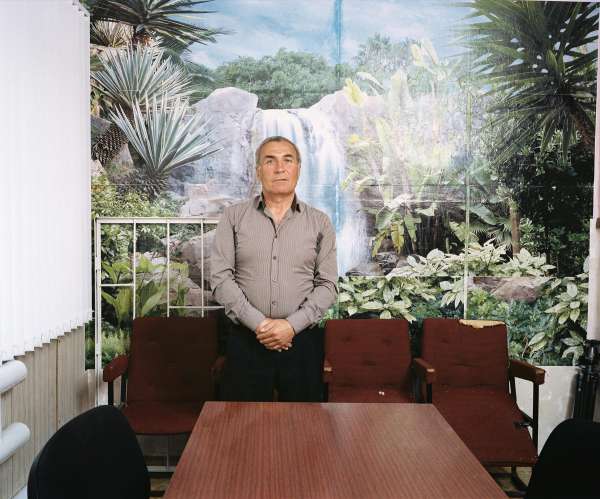
The new mayor Vladimir Khabievich Dzhemakulov in his office
Town hall, 2013
“There’s a strong Islamic lobby. As soon as they feel a bite, they reel in the new converts. They won’t stop until we’re all leading Islamic lives.”
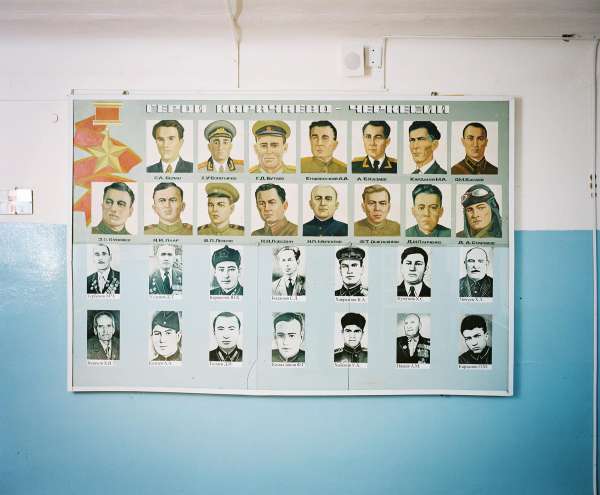
Tribute to fallen soldiers in the school’s WWII Museum
School no. 1, 2009
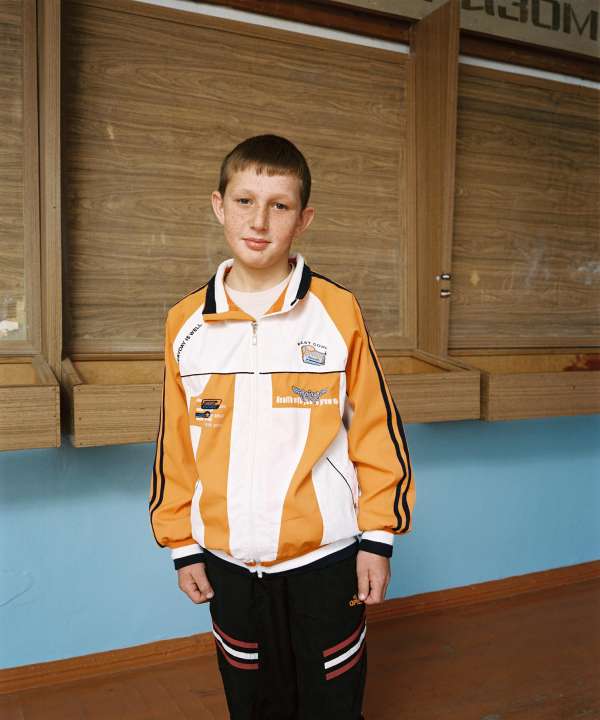
Murat (11) waits for the afternoon disco
School no. 1, 2010
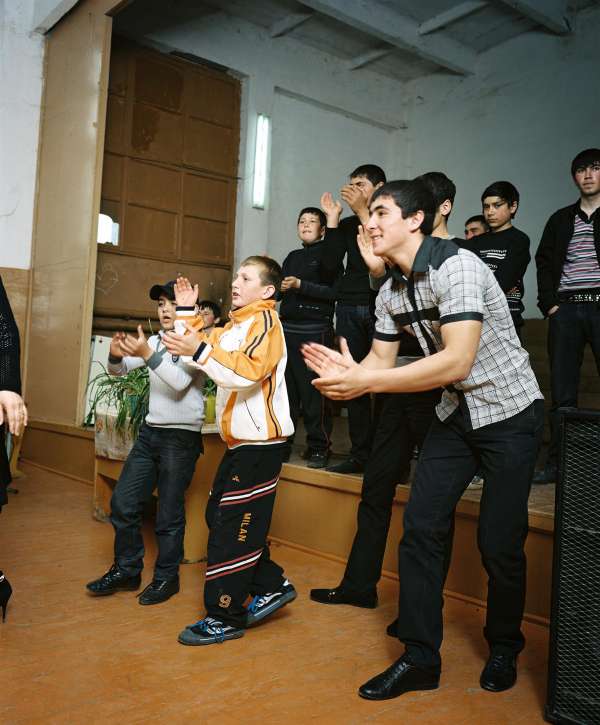
Disco at the school on Saturday afternoon
School no. 1, 2010
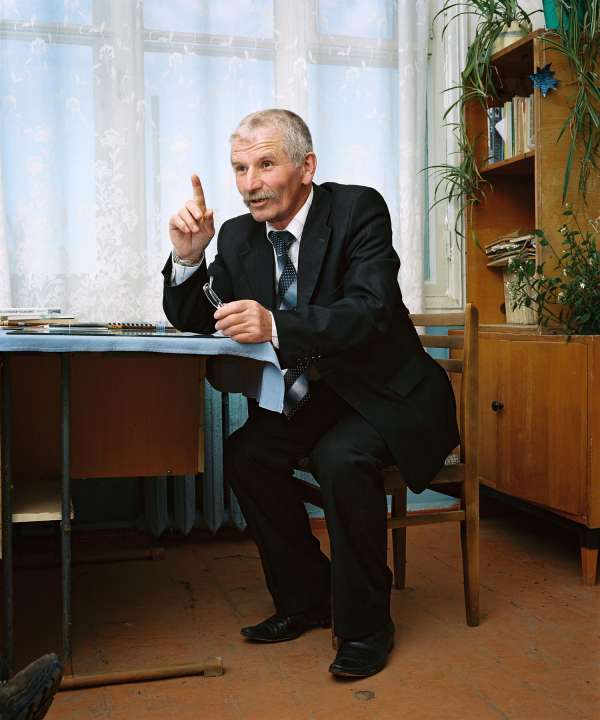
German teacher Boris Bezhanov (62)
School no.1, 2010
“It was 1966. I wanted to study languages in Sukhumi, but also to get to know our brothers; the Abkhazians. I met her in Sukhumi. Occasionally I was allowed to act as a guide for Intourist. I kept in touch with Renate for a long time.”
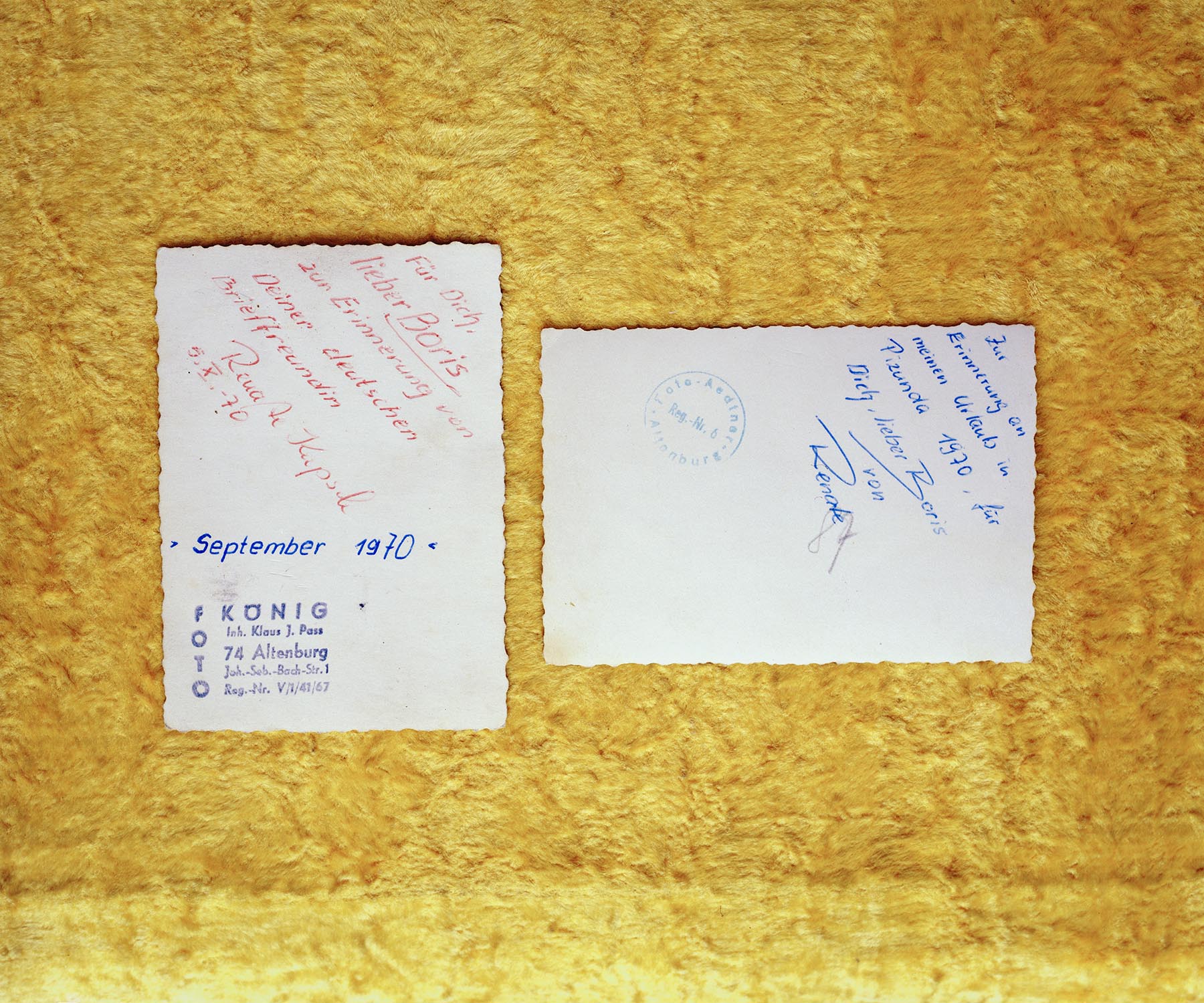
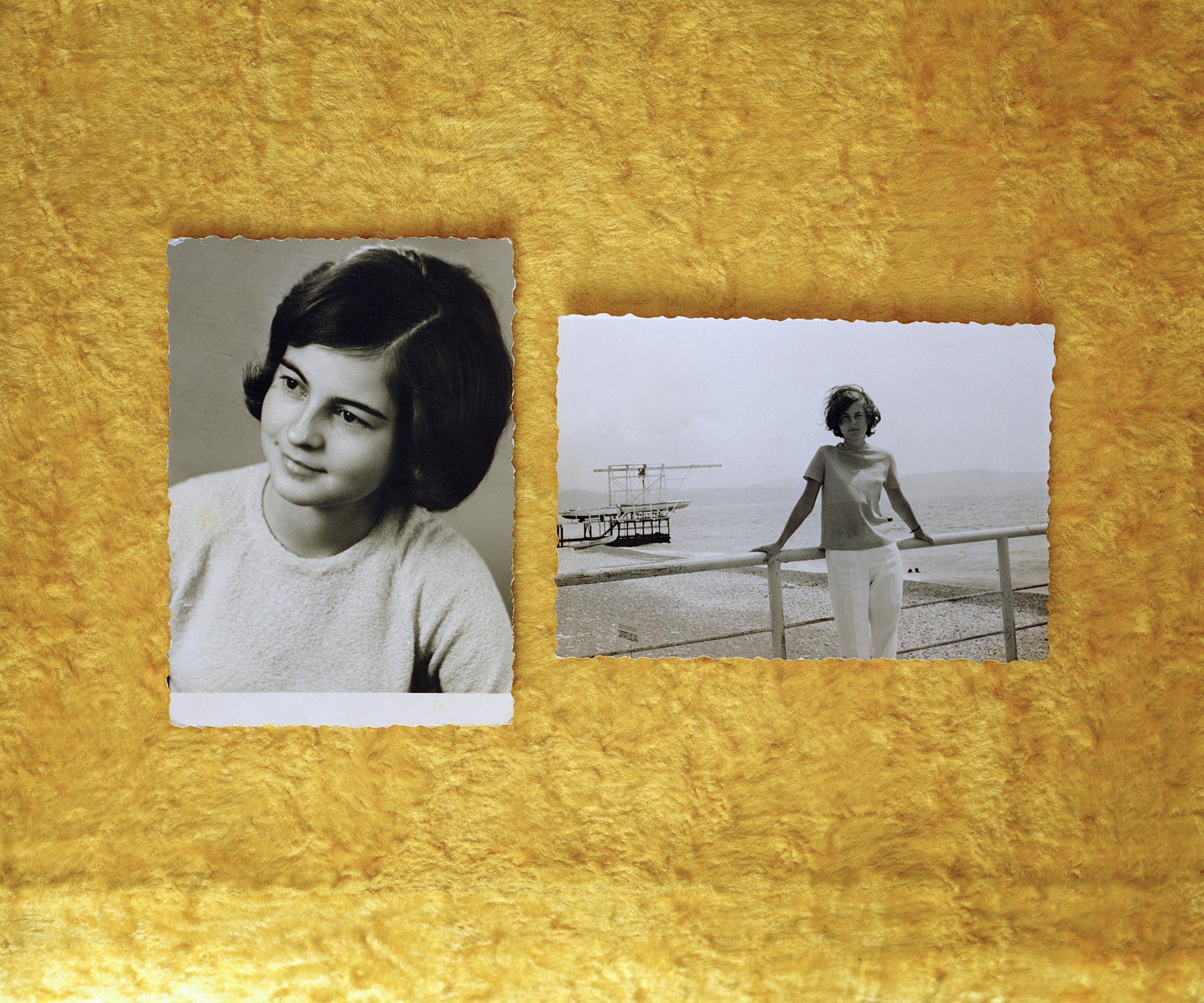
End ‘60s Renate went from the GDR to Abkhazia on holiday.
Boris Bezhanov’s house, 2010
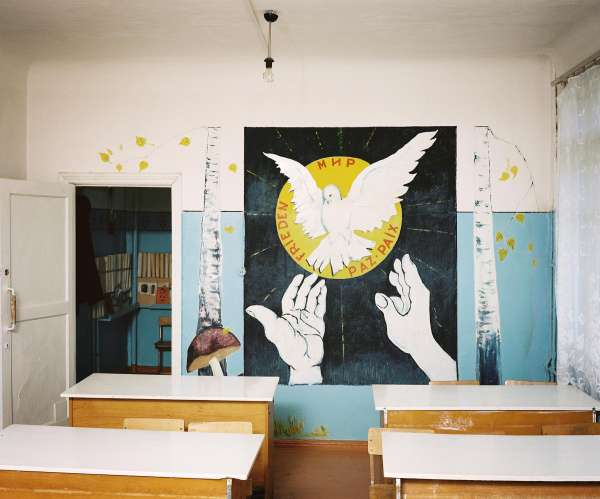
Classroom where Boris teaches German
School no.1, 2010
“After 70 years of the Soviet Union, no one knows any more what the real Islamic practices are. So people come to me and ask whether they can throw fruit and drinks into the grave at a funeral. It’s not necessary, I say, but neither is there much against it.”
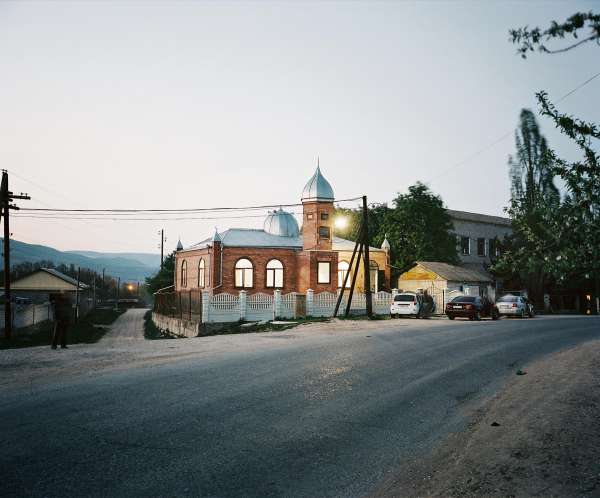
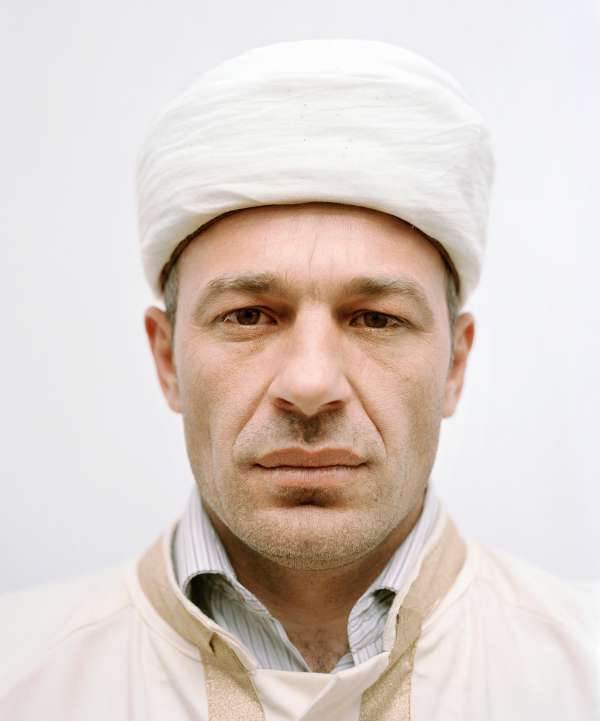
Imam Mohamet Adzibekov
Central mosque, 2013
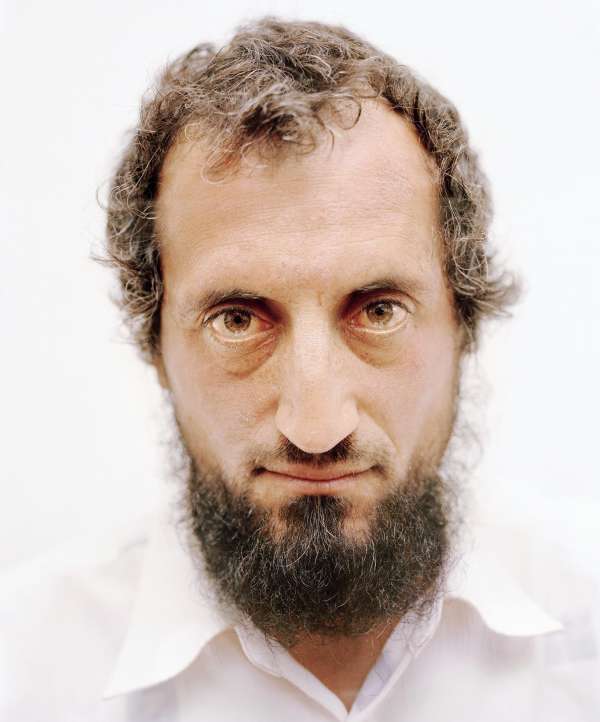
Terik Bairamukov runs the mosque near the river
Lower mosque, 2013
“Everything is changing for the better. More people are coming to the mosque than before. We’re gaining influence in the village, and finally making it clear that those old traditions, such as drinking alcohol or taking drugs, are incompatible with Islam.”
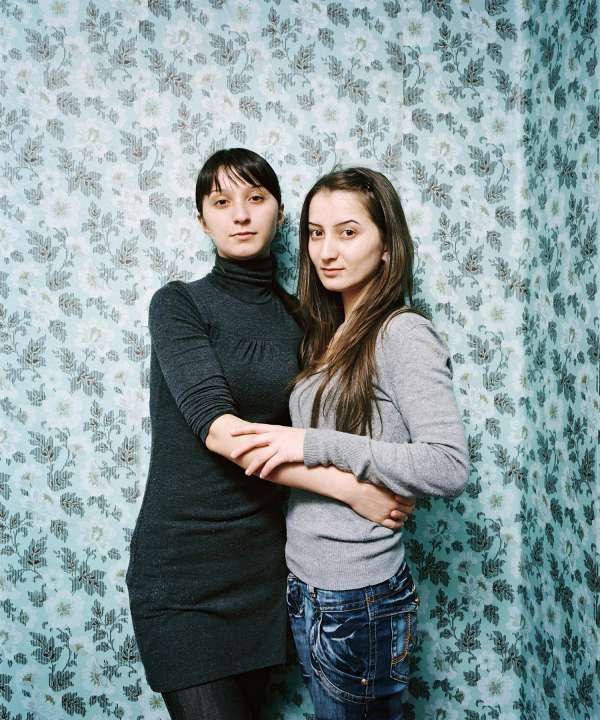
Stella and Giorgi’s daughters Veronika and Viktoriya Ekzekova
Stella and Giorgi’s house, 2013
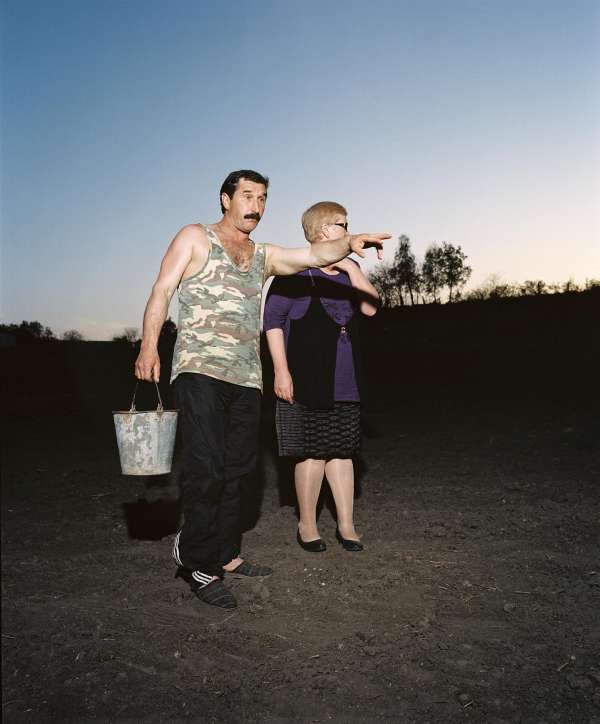
Former mayor Taisya and brother in law Giorgi
Stella and Giorgi’s house, 2013
“I want a husband with a house, a car, and a good job. Apart from that I can support myself. A good husband will leave me alone.”
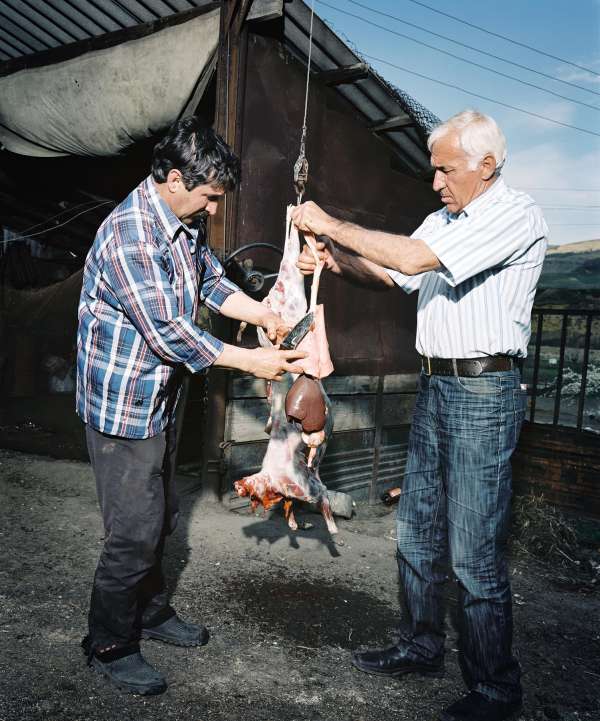
Giorgi and uncle Husey slaughtering a sheep
Stella and Giorgi’s house, 2010
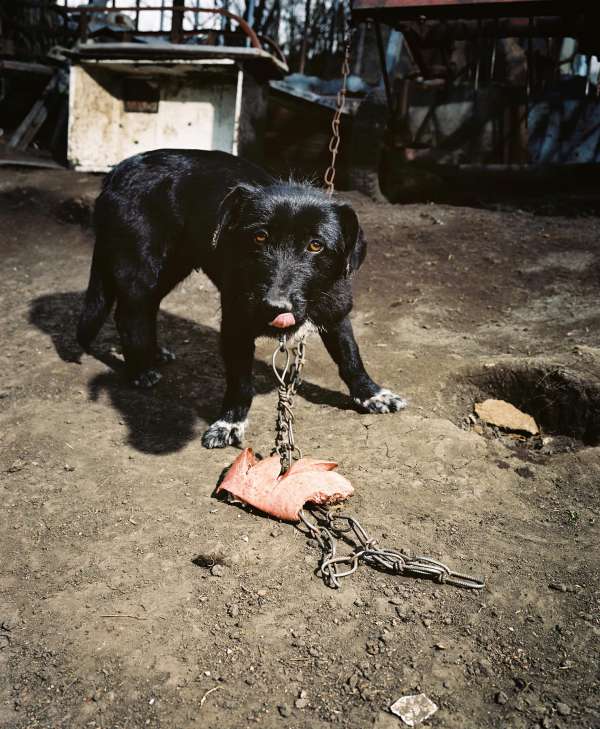
Dog eating the entrails of a slaughtered sheep
Stella and Giorgi’s house, 2010
“The imam here in the village was educated in Cairo, at a special place where they ‘breed’ bearded men.”
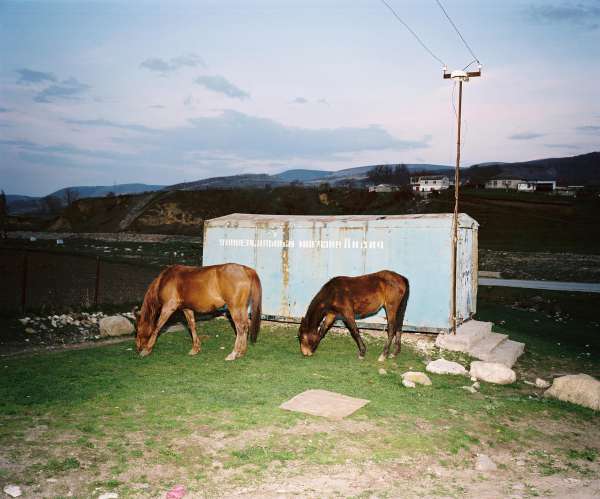
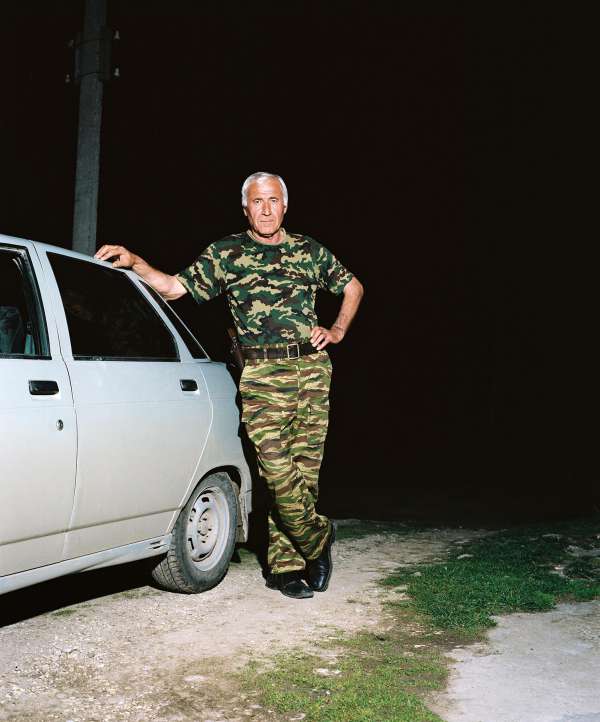
Former mayor’s driver (and uncle) Husey Aibasov
Lilya department store, 2010
‘I’d kill a boy if he took my daughter as his girlfriend.’
Farewell party with former mayor Taisya Makova, uncle Husey Aibasov and the Ekzekov family
The Honey Falls, Karachay Cherkessia, 2013
“You know what you should write down? You’re in the mountains. There are no deep rivers here. We aren’t very complicated.”
